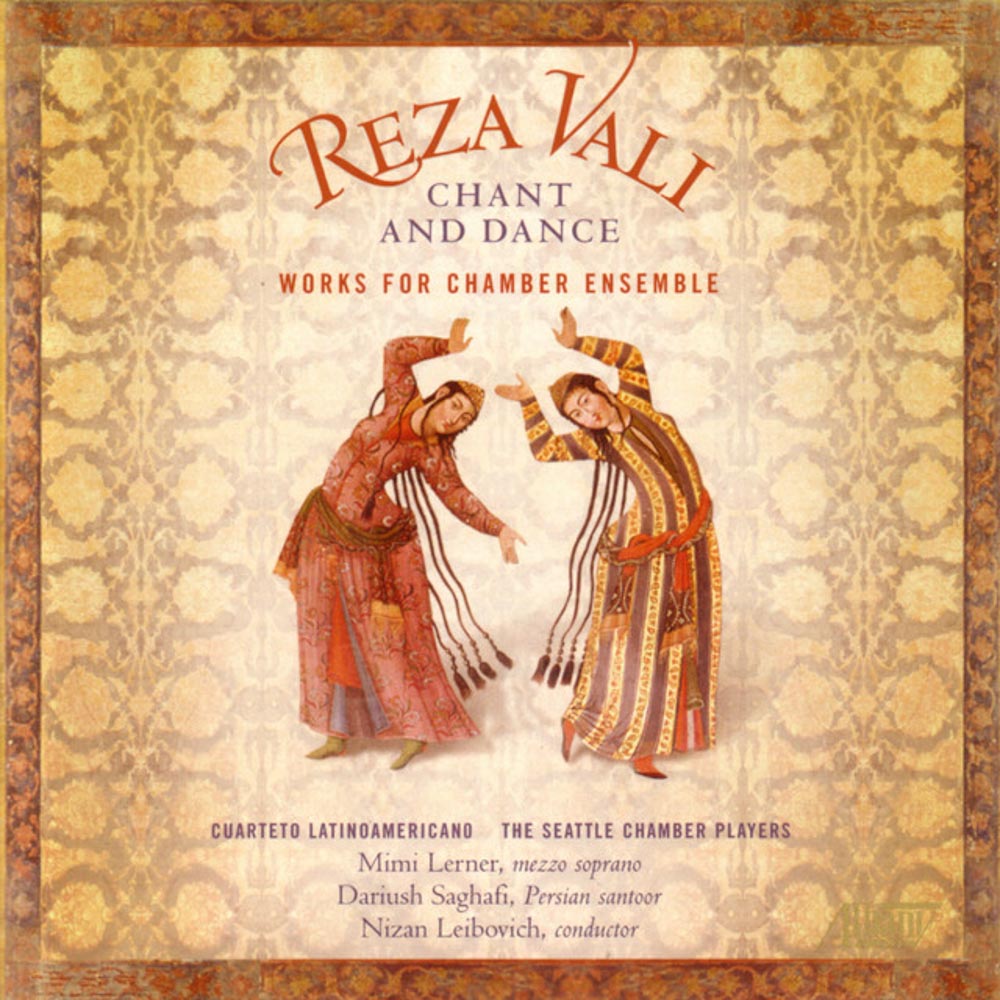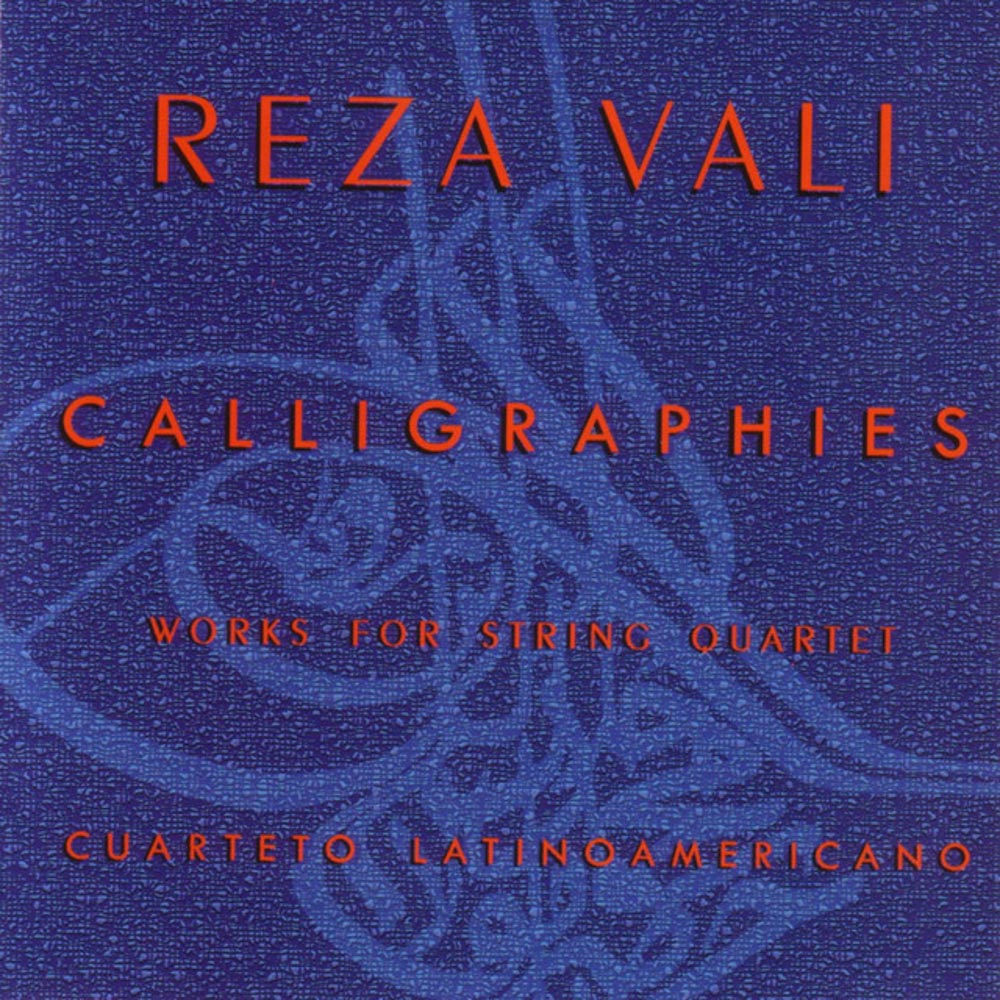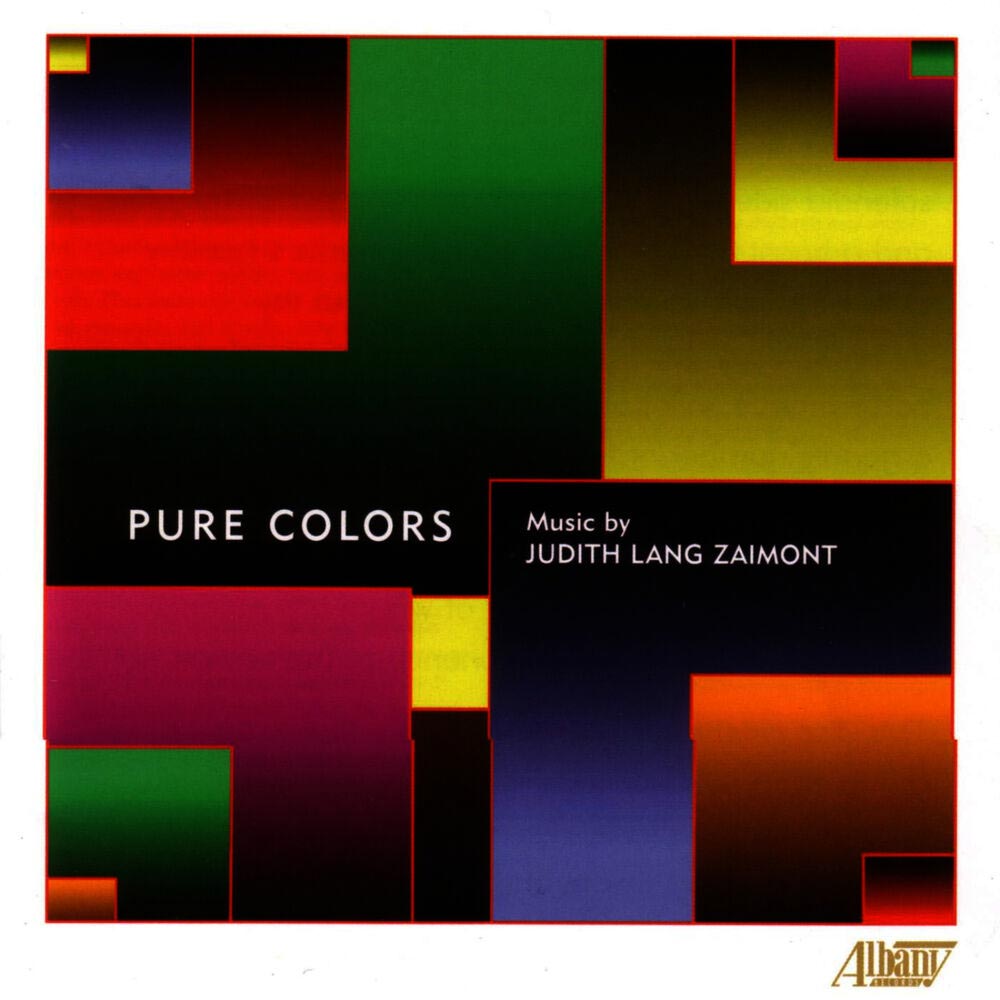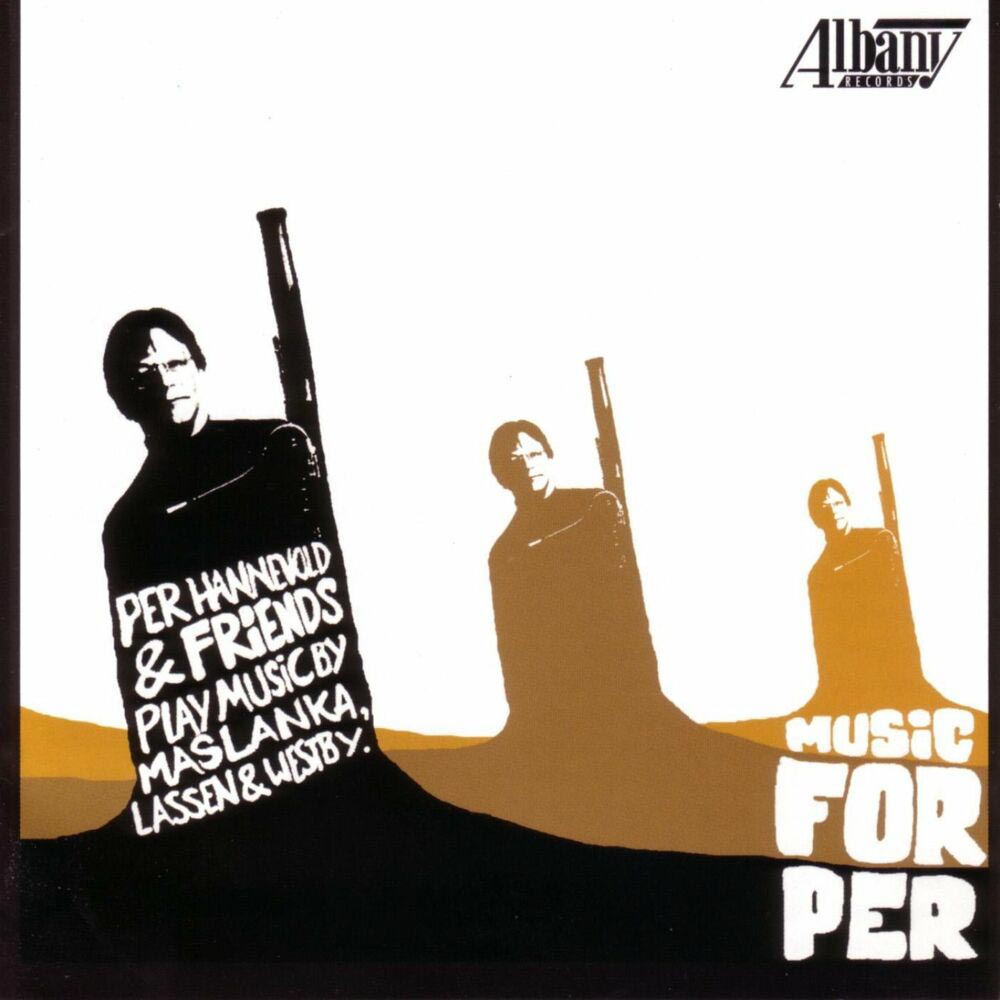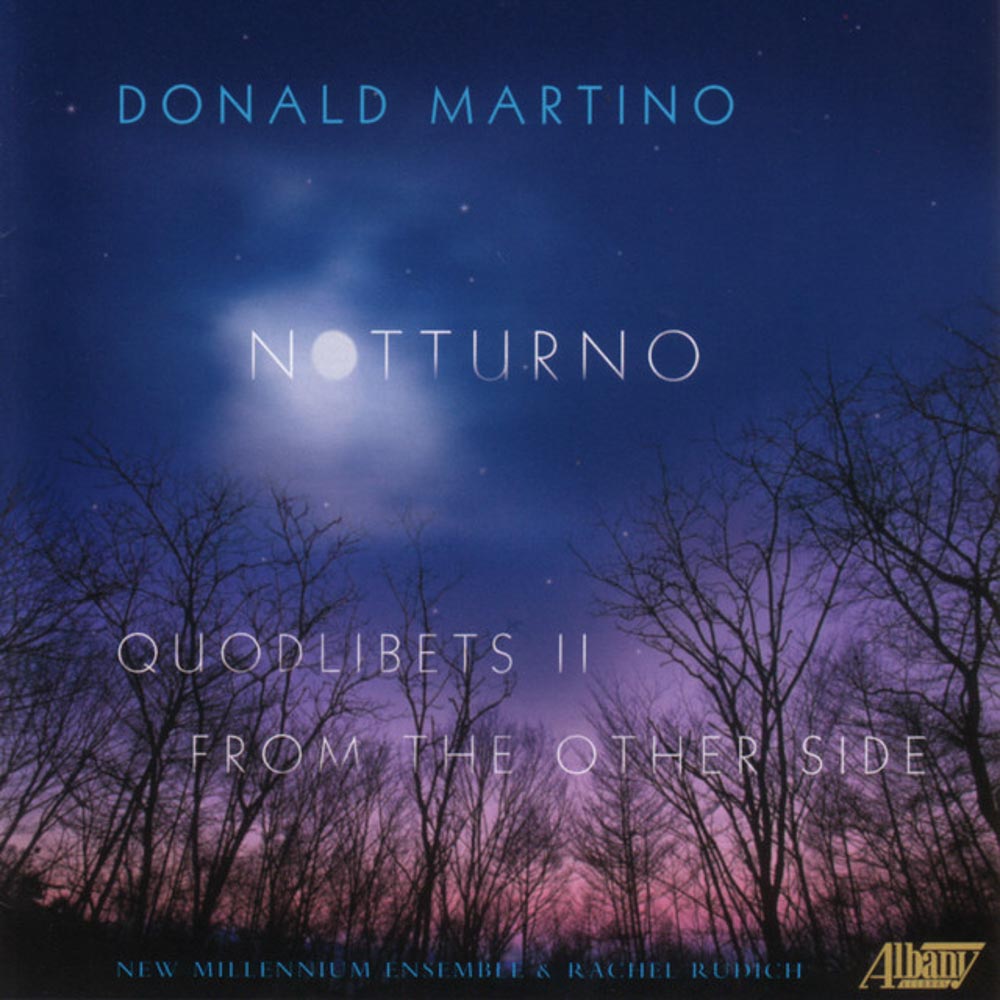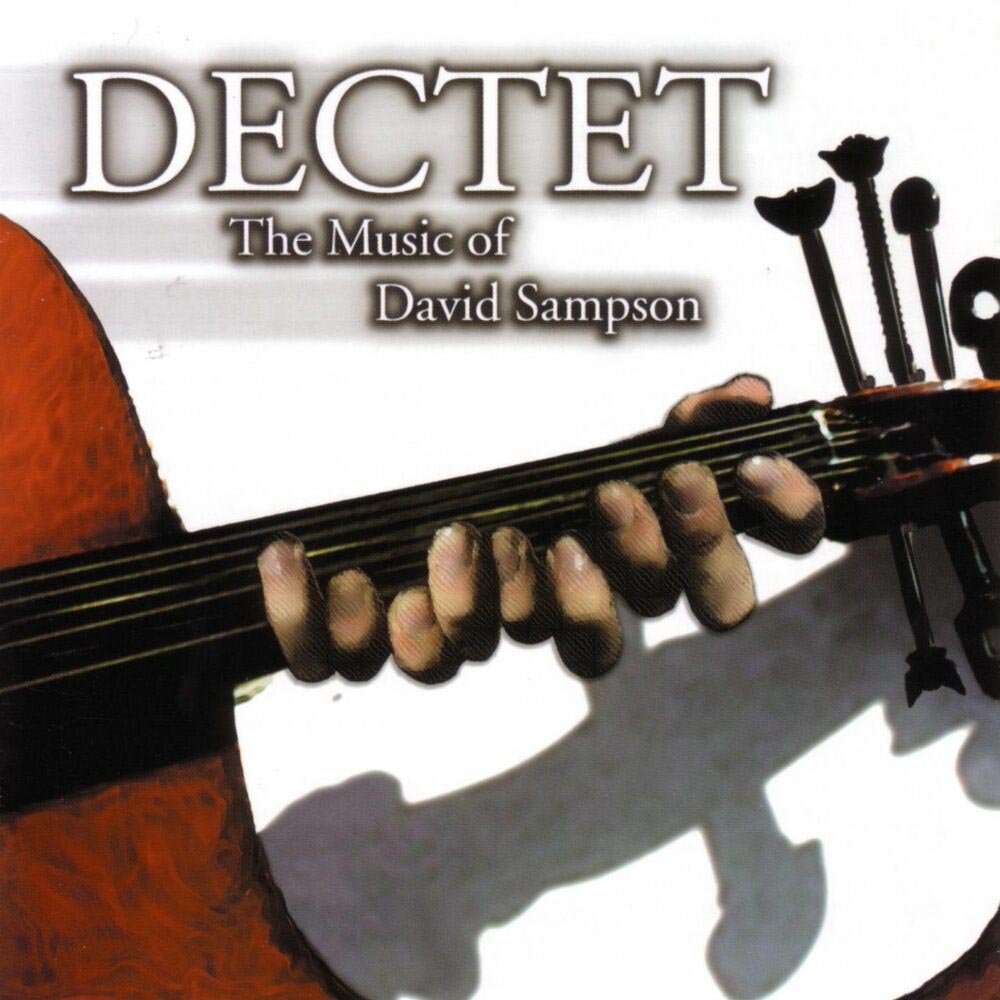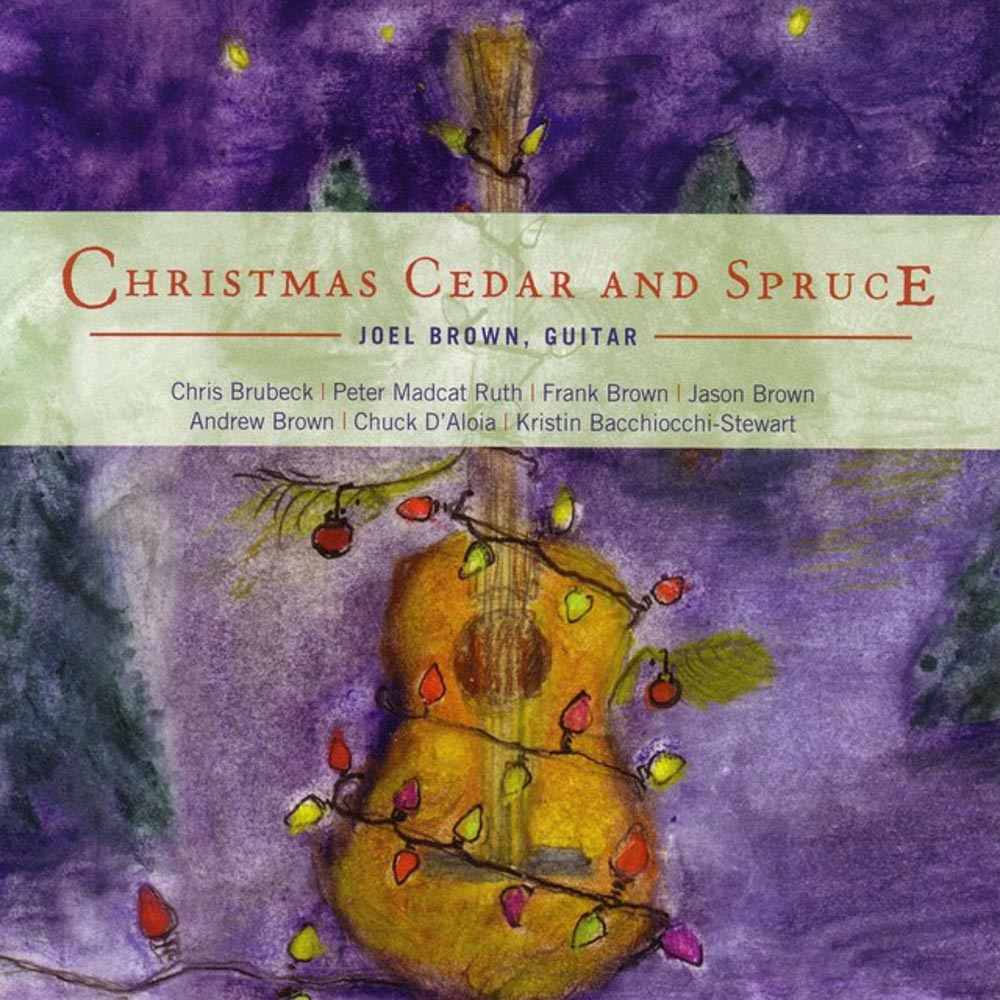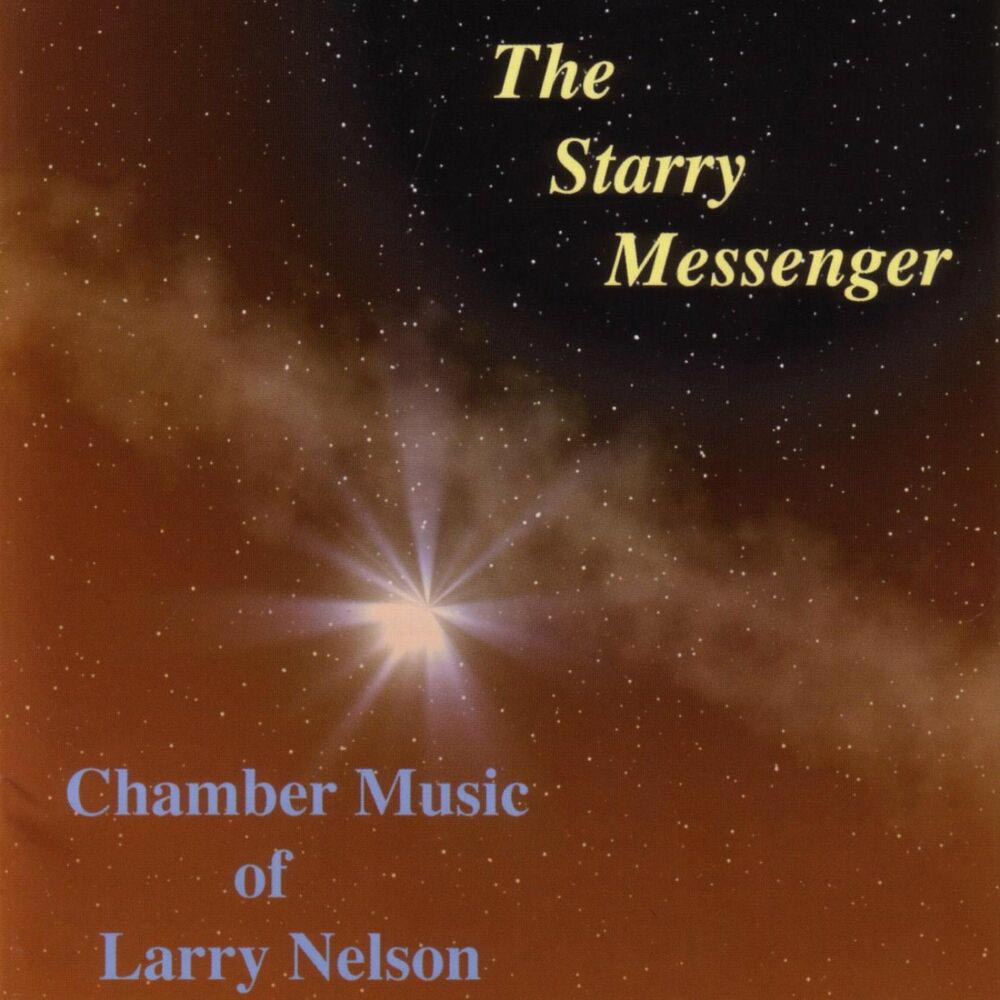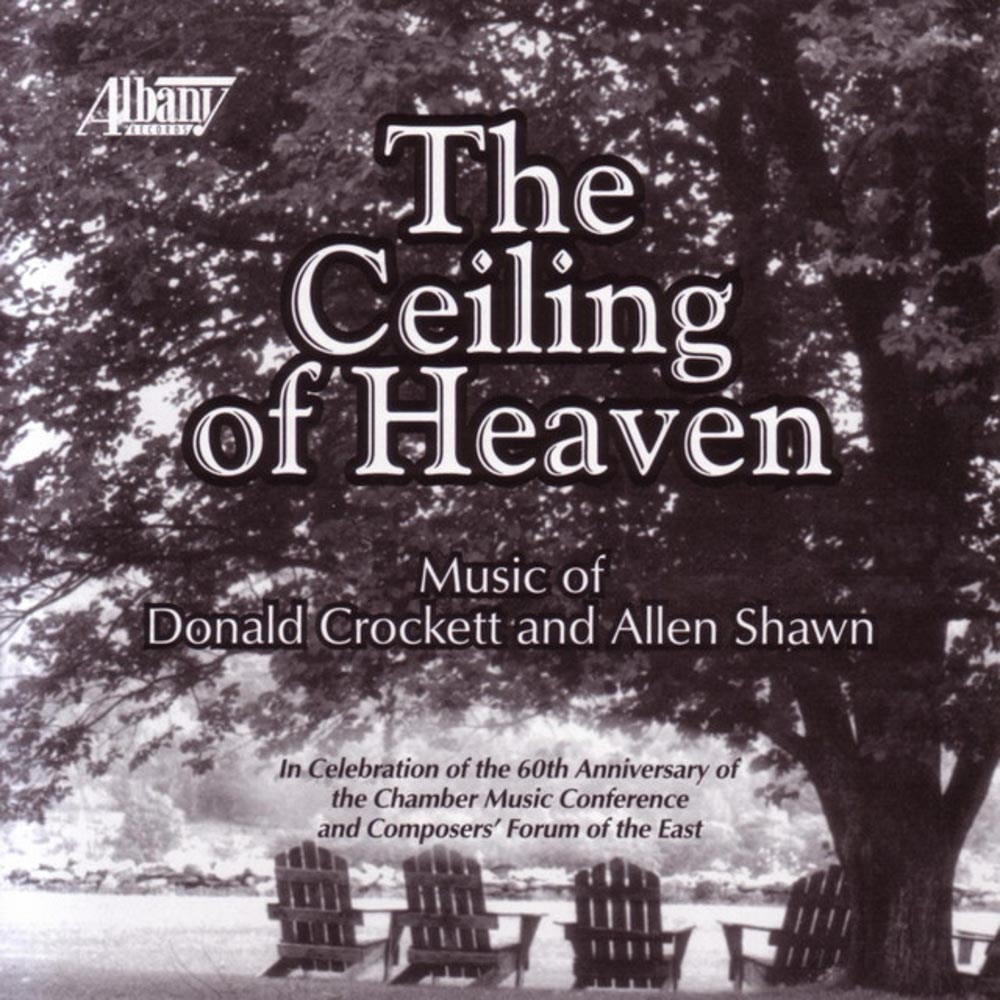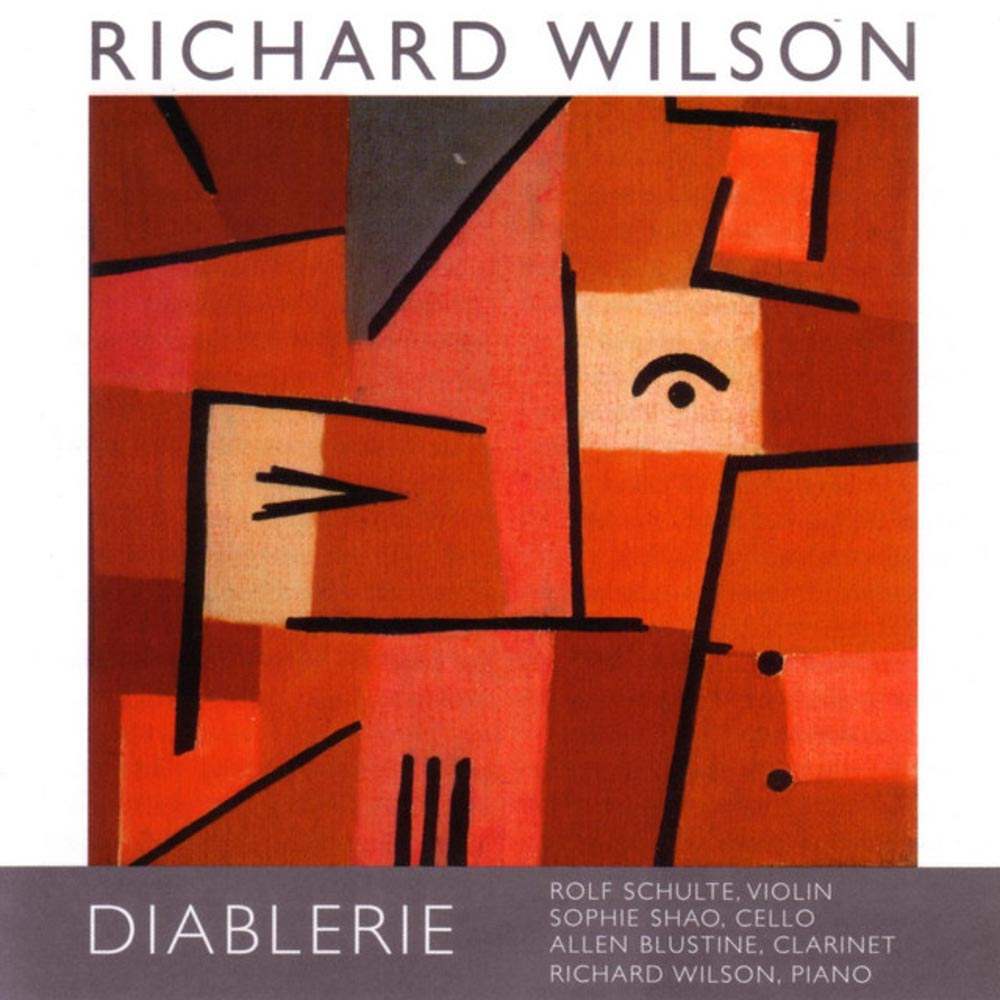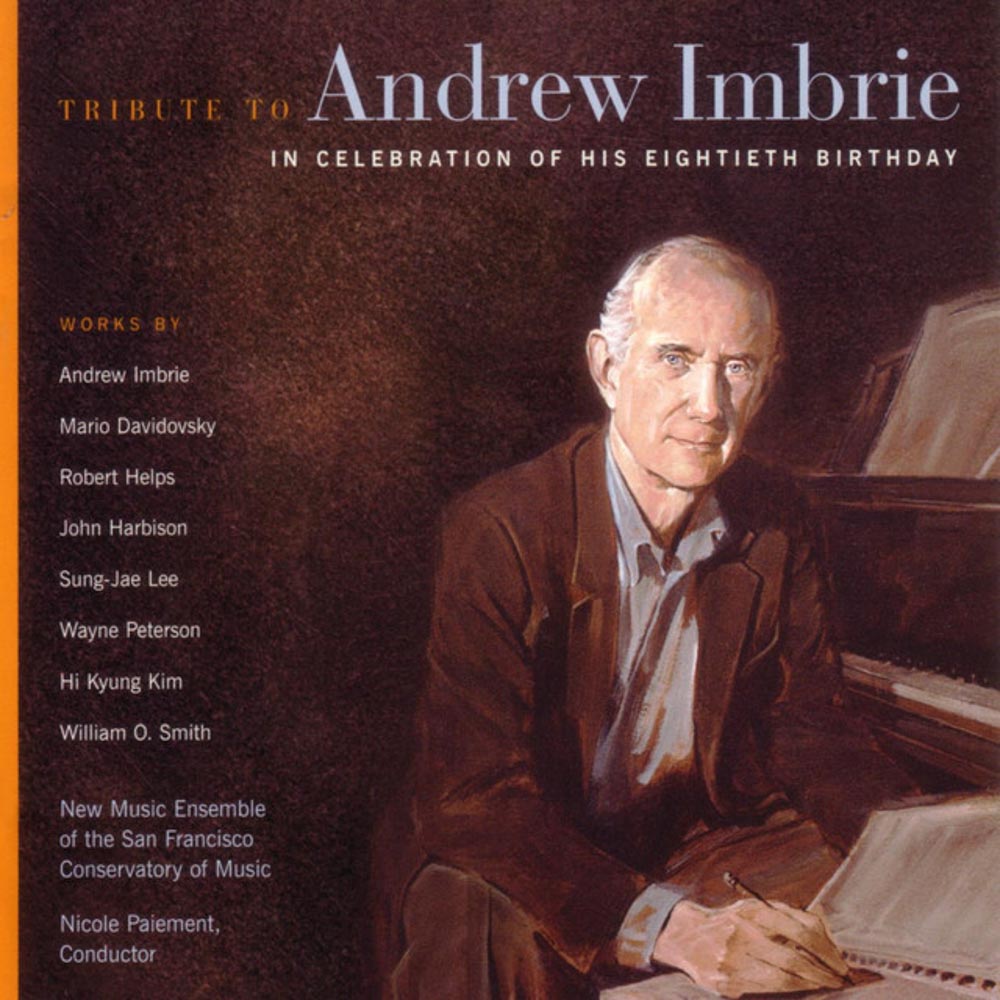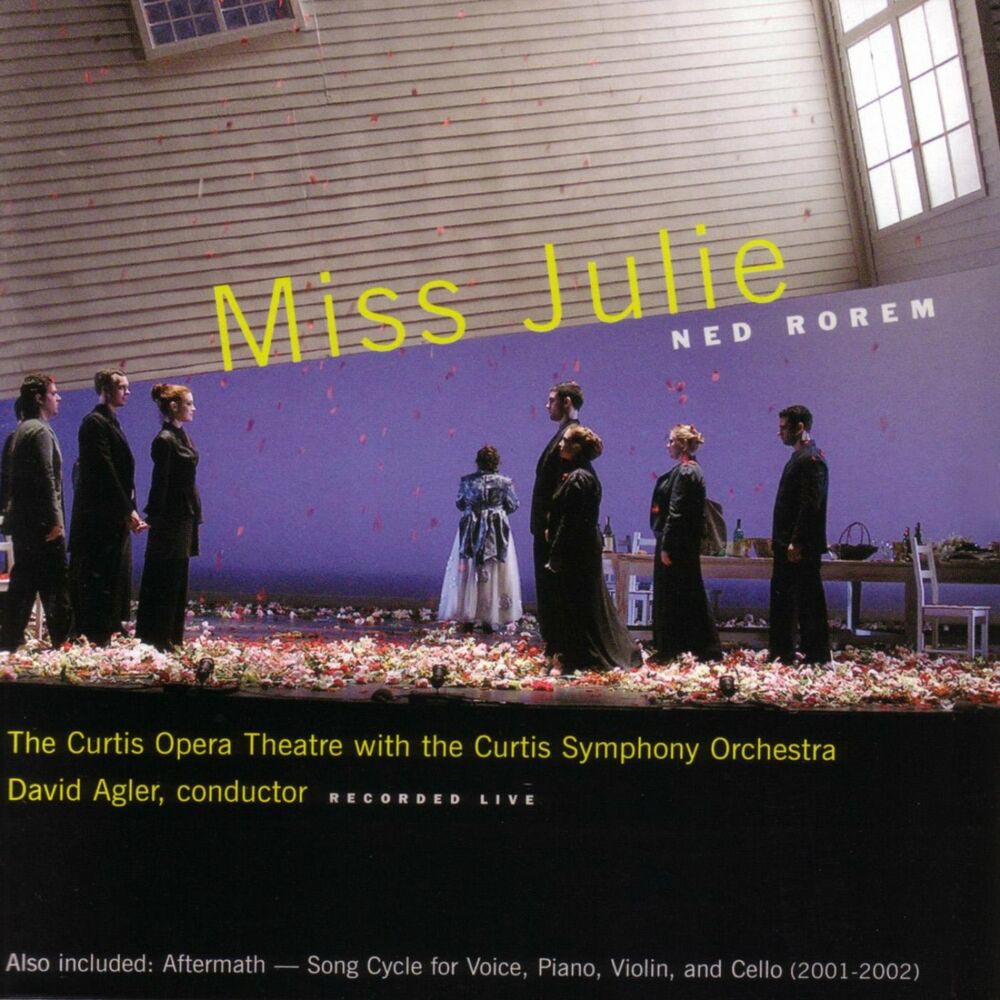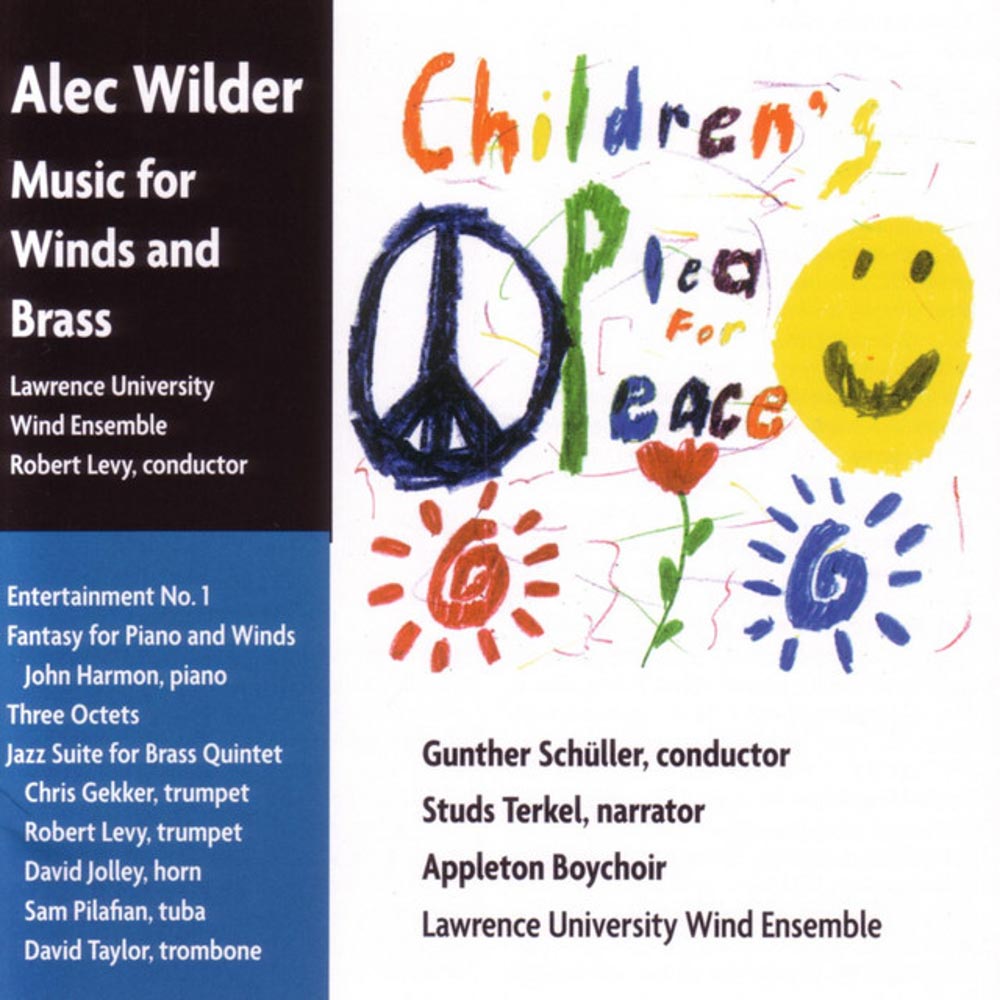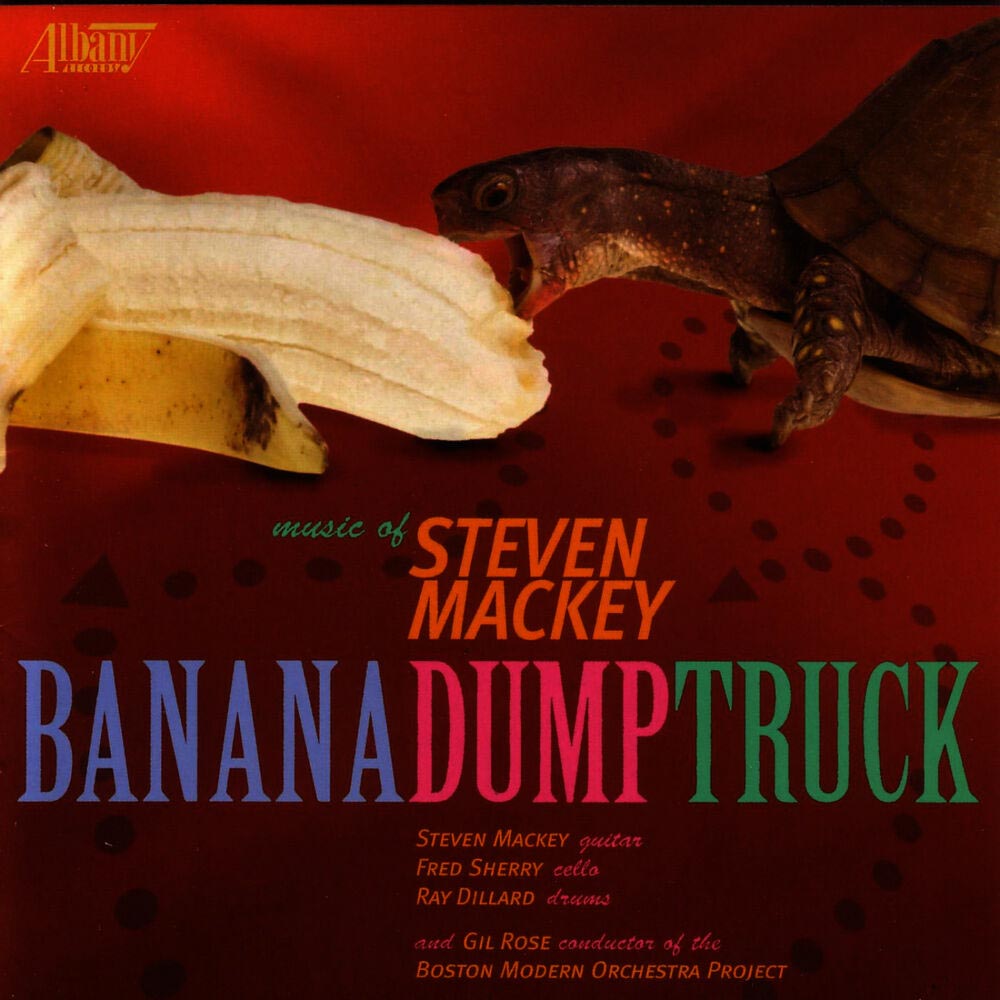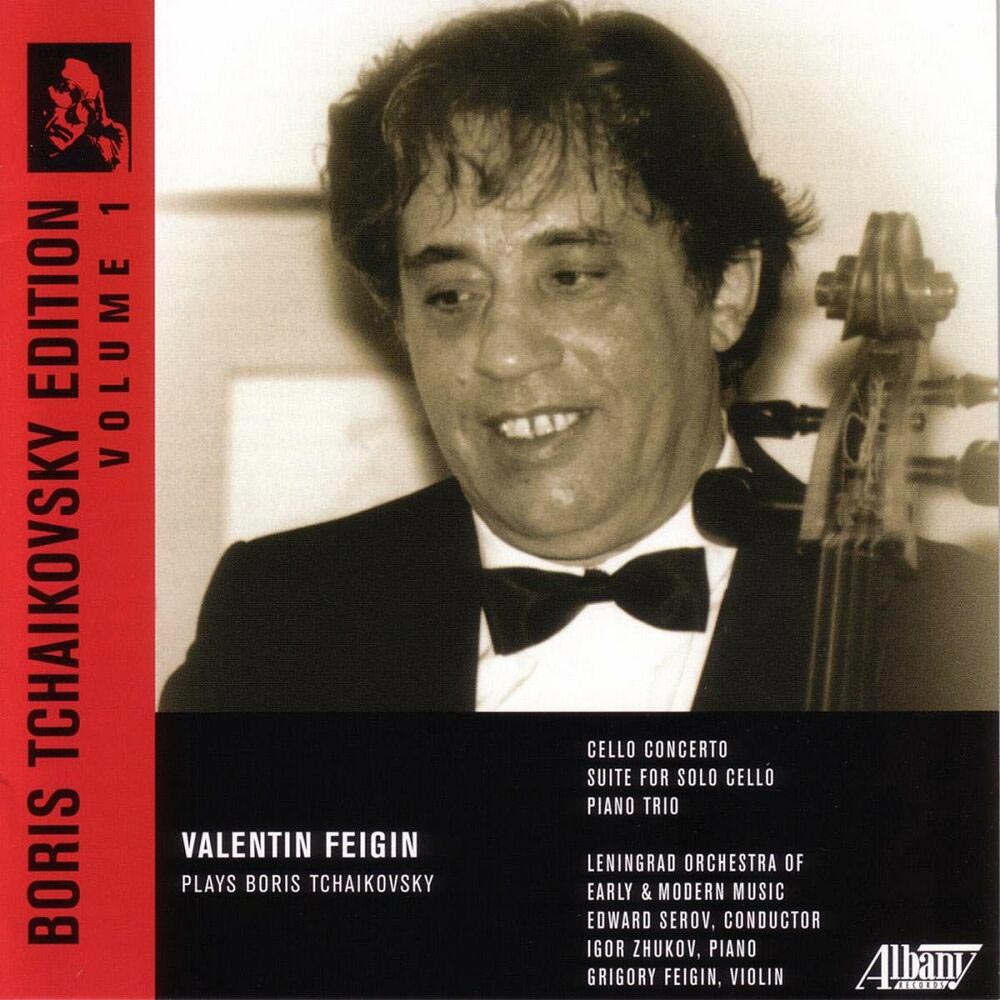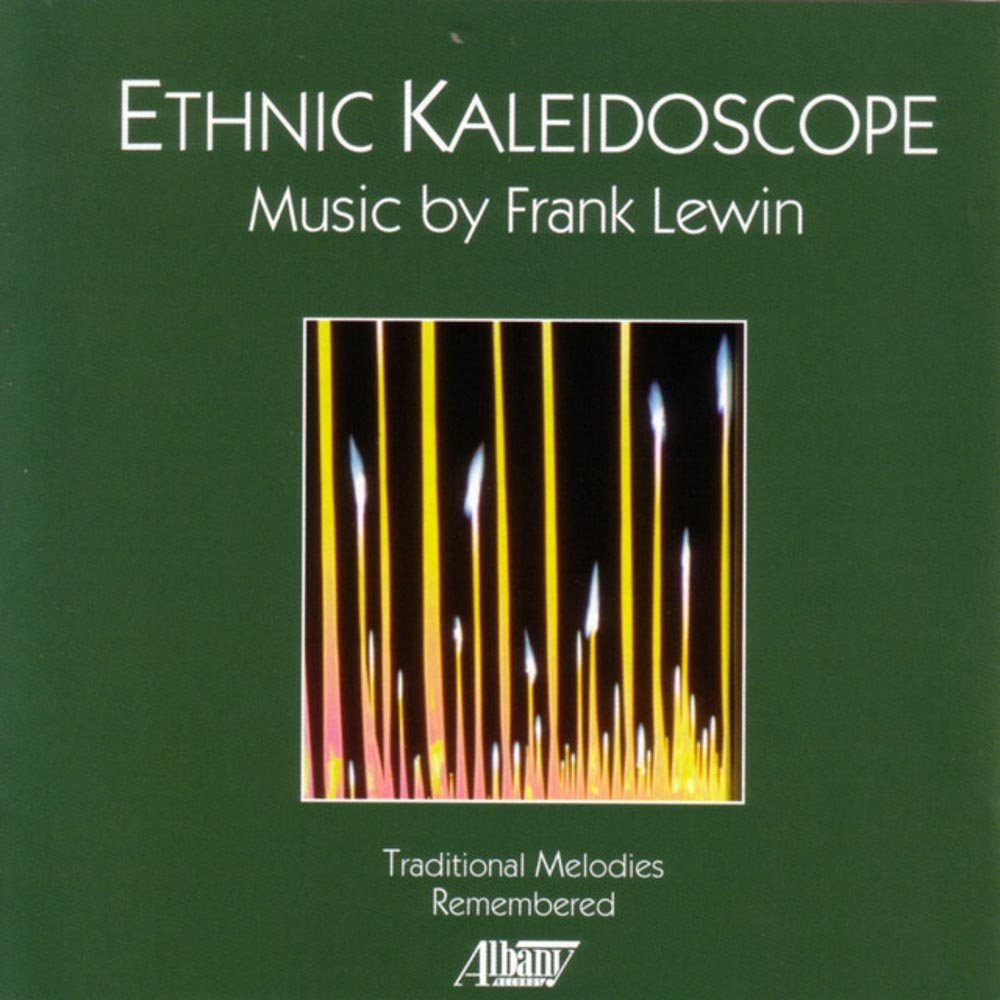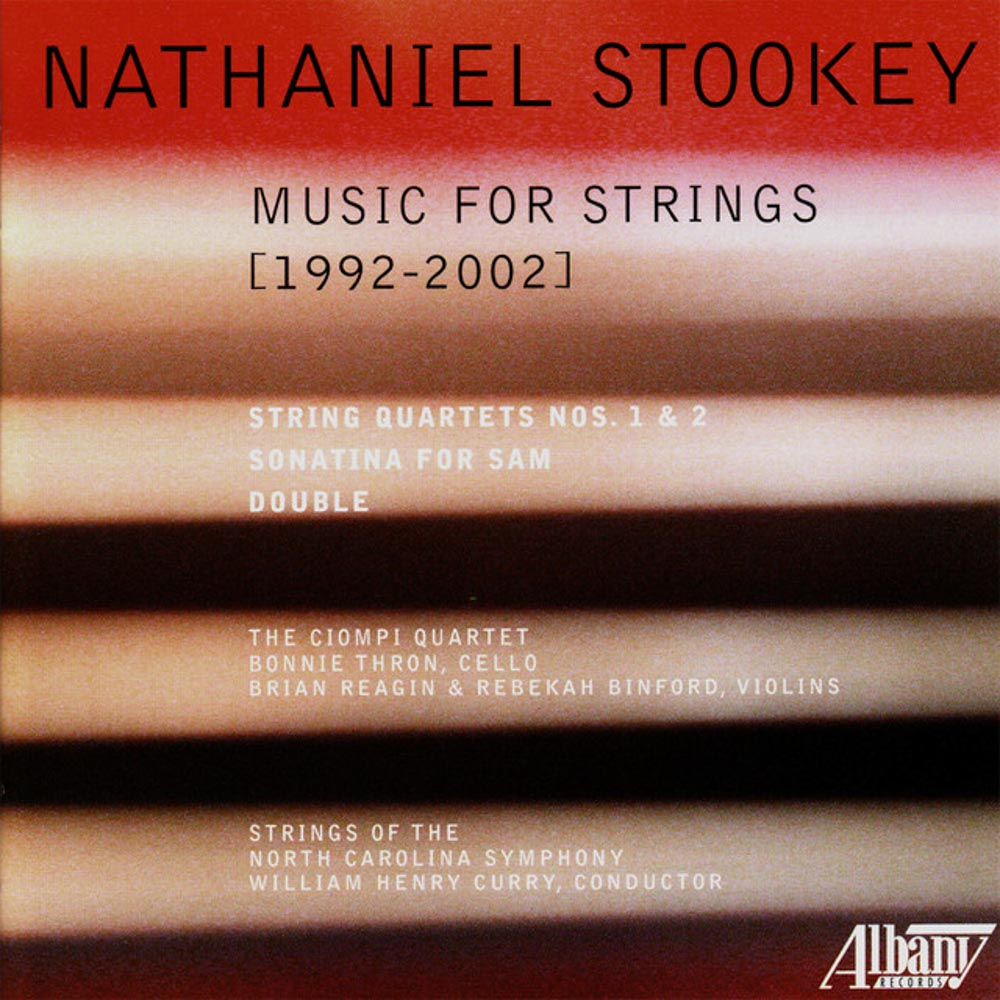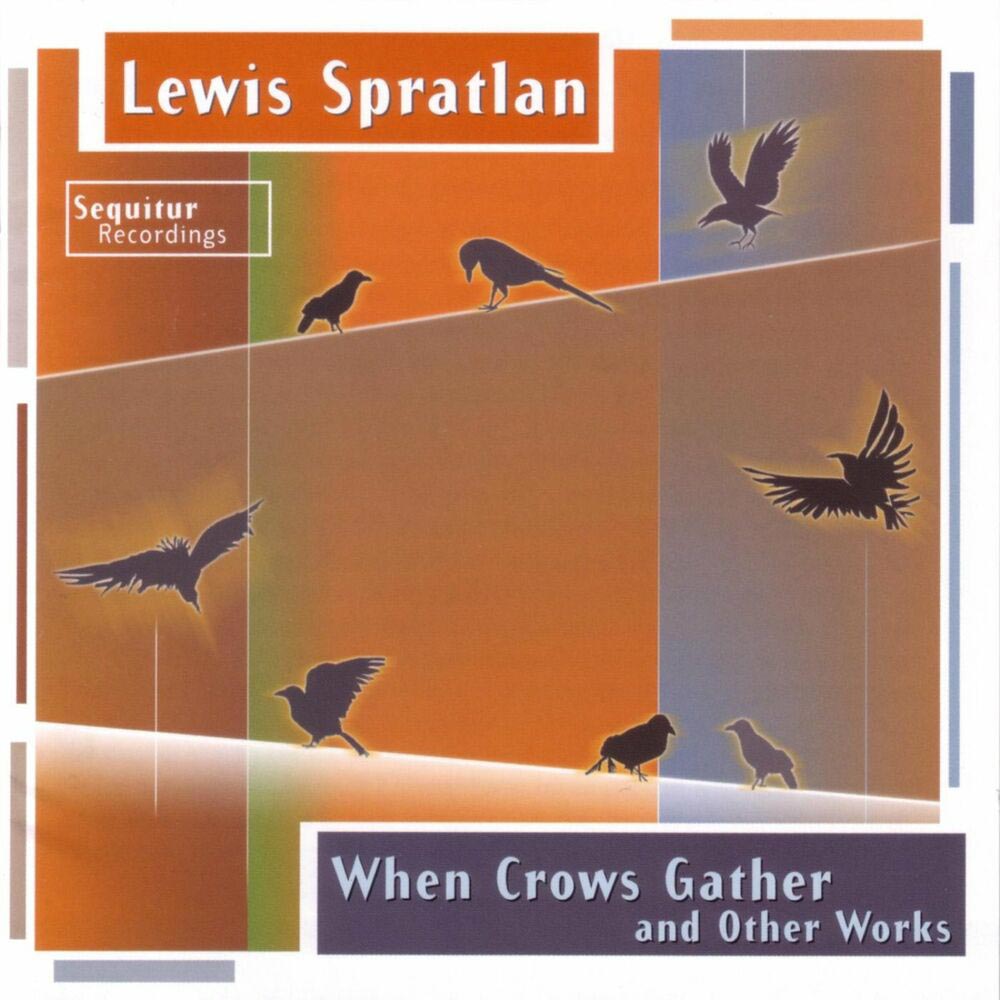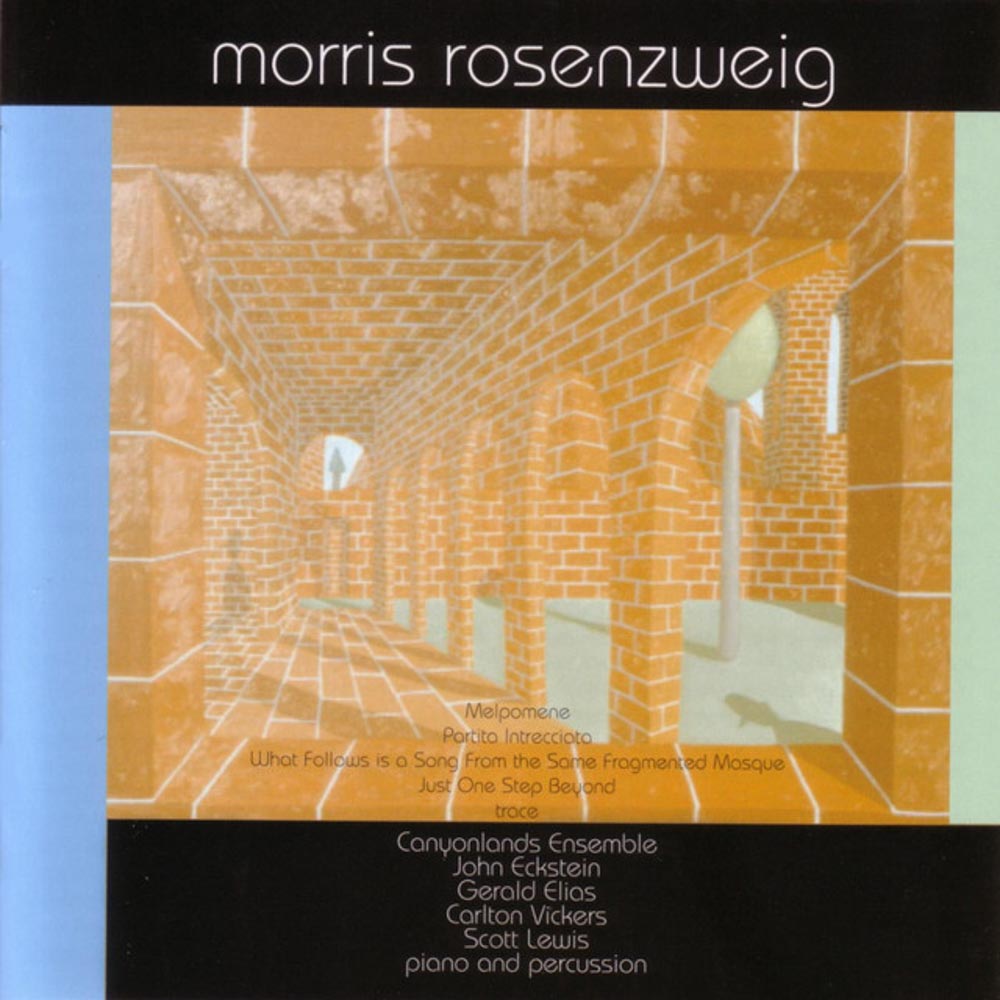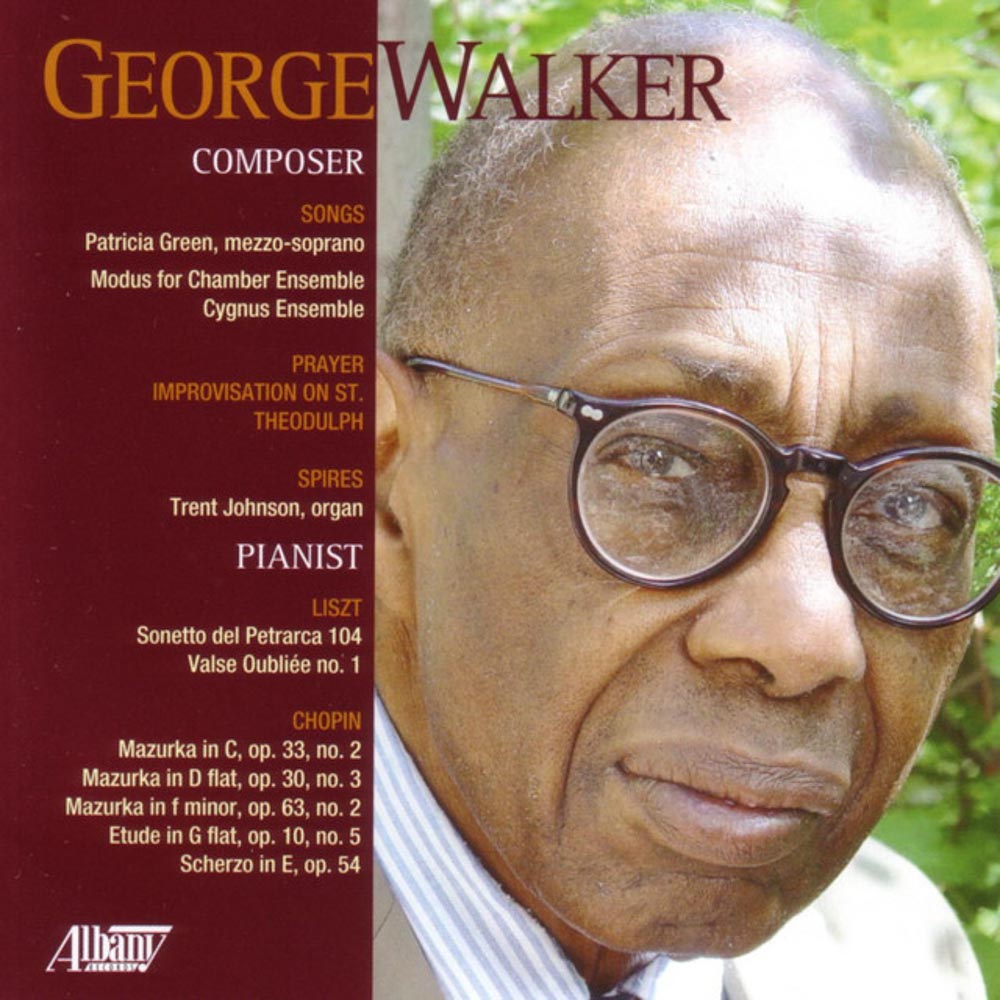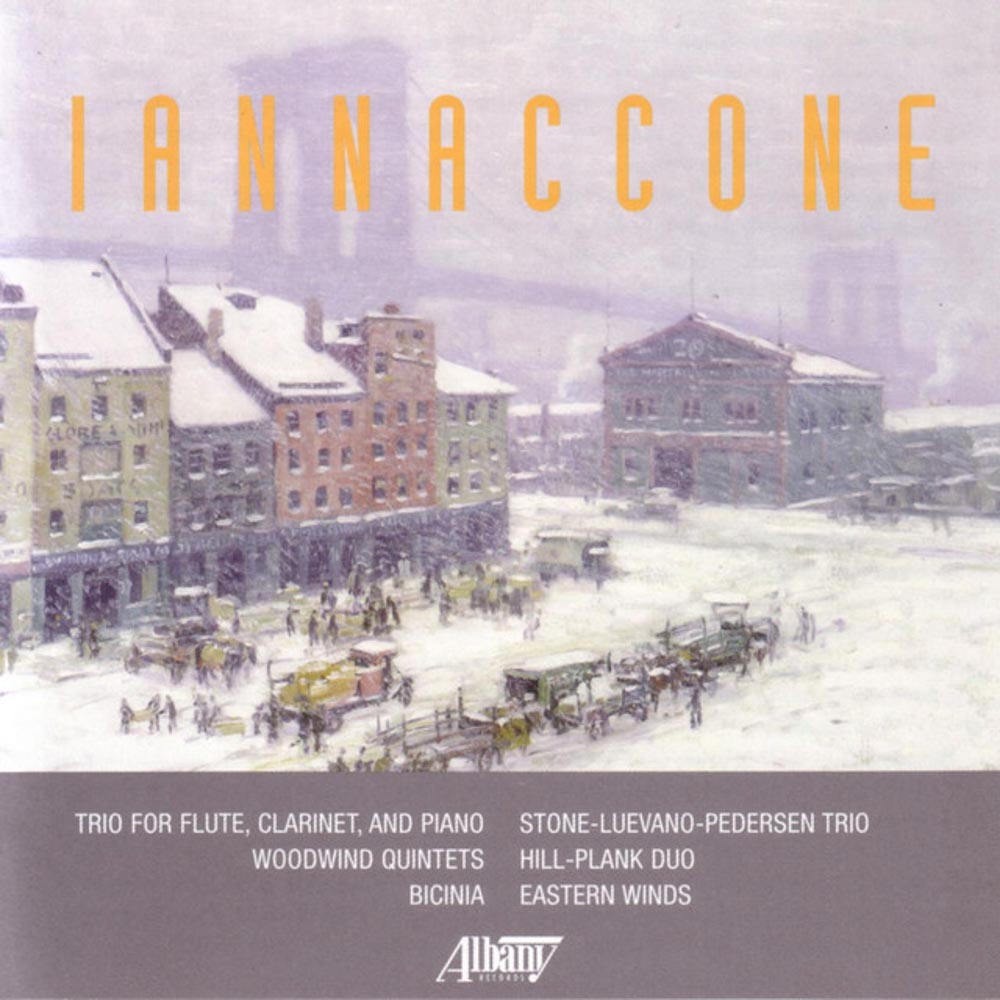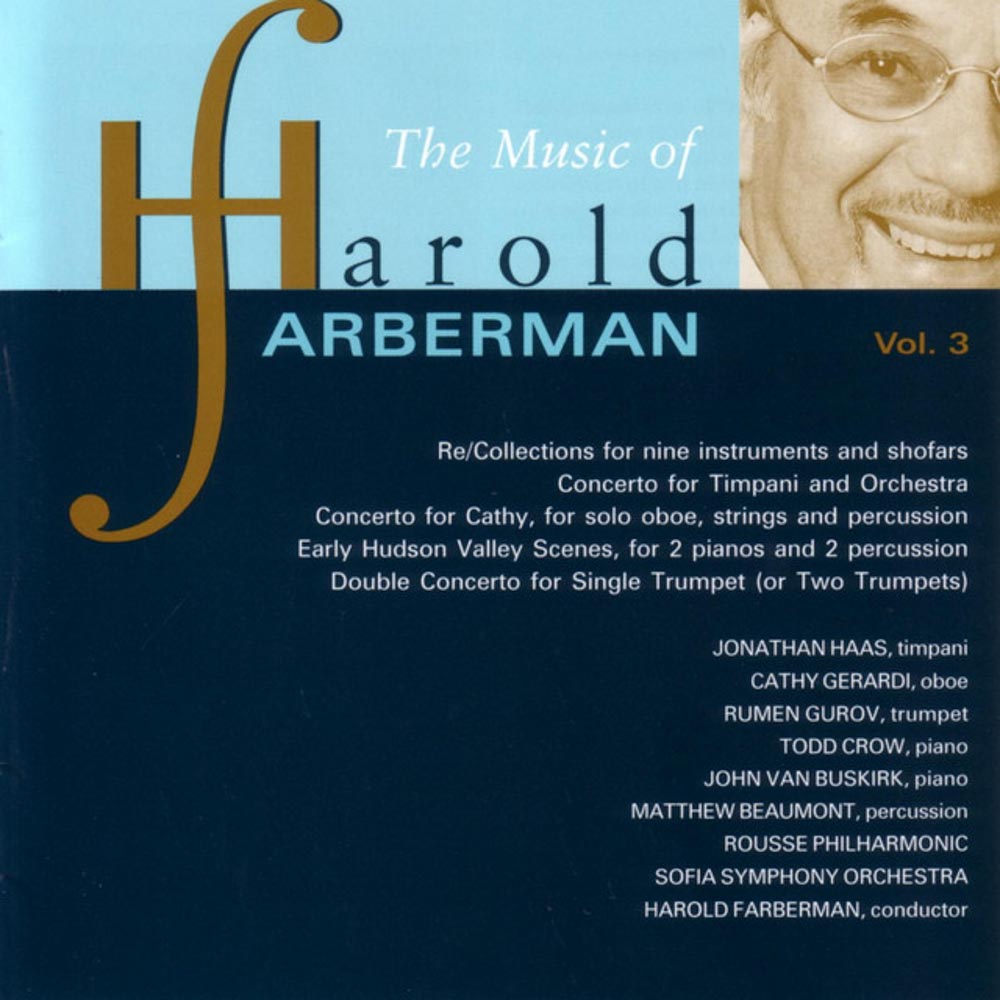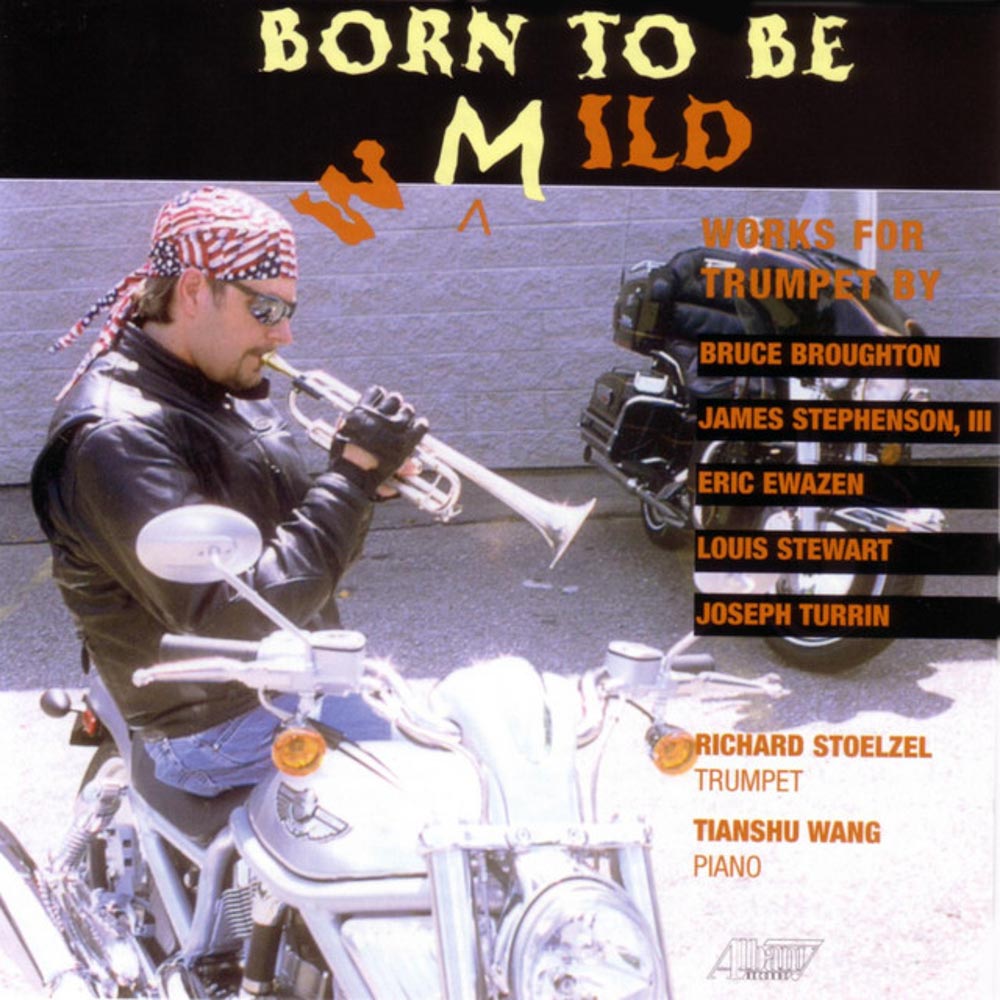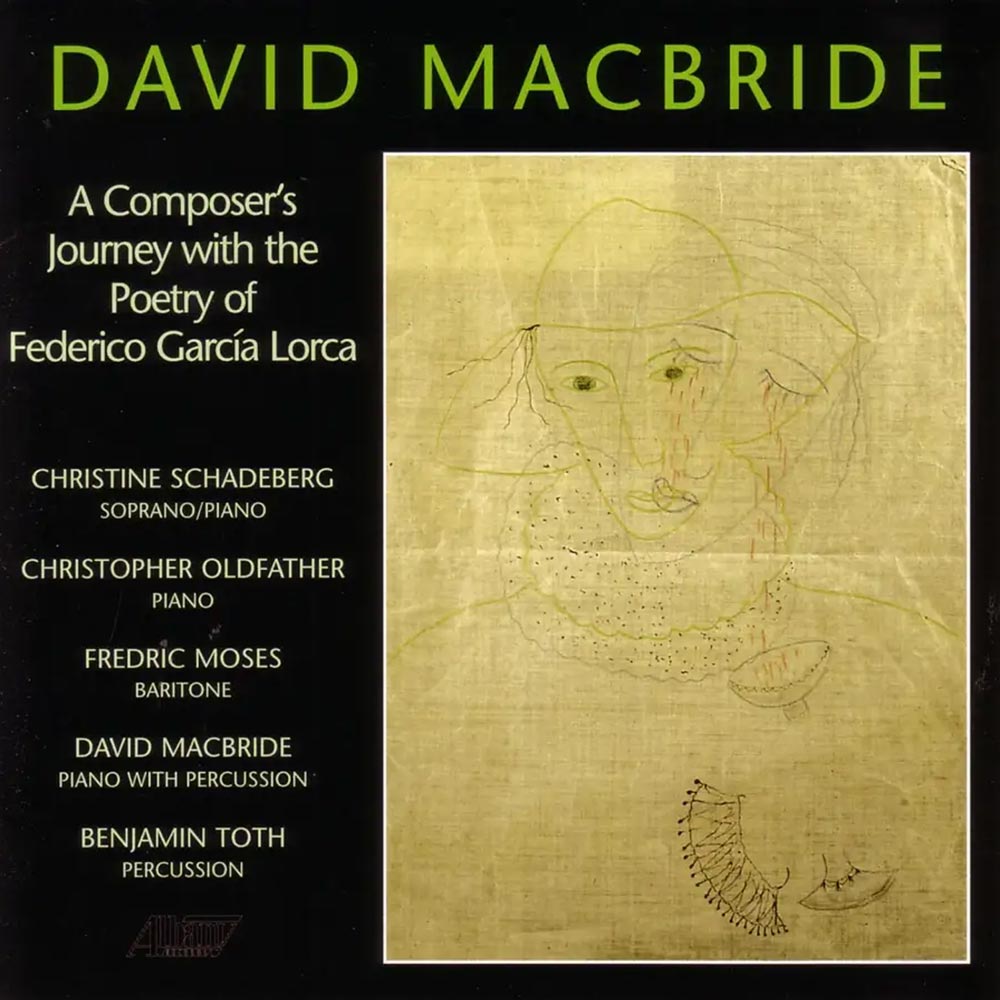Catalog #: TROY0824
Release Date: February 1, 2006ChamberHere is a welcome companion to the acclaimed release of Reza Vali's music for string quartet on TROY790. This time music for larger chamber ensembles is featured, with an emphasis on the Persian folk music Vali grew up with. Since 1988 he has been on the faculty of Carnegie Mellon University, and has received numerous awards and commissions from the Pittsburgh Symphony, the Boston Modern Orchestra Project, the Kronos Quartet and many other ensembles. His early works indicated his interest in the avant-garde but in recent years he has composed works featuring strong influences from the music of his native Persia. The sets of Folk Songs and particularly the Calligraphy No. 4, with its use of the santoor (a Persian hammered dulcimer), derive almost entirely from Persian folk song. This is truly unique and highly original music.
Catalog #: TROY0813
Release Date: January 1, 2006ChamberJoseph Waters writes, "I find this juxtaposition of contemporary electro-acoustic ephemera with a collection of musical instruments and a performance practice that predates the age of technology to be simultaneously anachronistic and engaging. It is my goal to create strong and deep tie lines that connect the present surface to the ancient seabed miles below. This is my celebratory reaction to our current milieu, which juxtaposes Mozart one minute with rap music the next. There are many connections between them, which I find fascinating and exhilarating." This music bears tribute to Debussy and Messiaen (Ocean Eyes), explores Afro-Cuban influences (Witches of the Unconscious) and the worlds of seabirds and exotic marine life (Ghosts and Aloiloi) as well as the phenomenon of intense fright when suddenly awakening from a deep sleep (Kanashibari) and the onset of morning (Loneliness). Born in 1952, Waters is Associate Professor of Music Composition and Director of Electro-Acoustic and Media Composition at San Diego State University. His first musical experiences included playing in a rock band, and the myriad influences of the world and its music figure in his own compositions.
Catalog #: TROY0803
Release Date: January 1, 2006ChamberThe Scottish-born Judith Weir began her career as an oboist and took composition lessons with John Tavener and Robin Holloway. Her music is performed in Europe and the United States. Her works reflect her diverse interests in narrative, folklore and theatre, with British folk music a strong influence. This release is an excellent sampling for those unfamiliar with her work: The Consolations of Scholarship is a highly-compressed opera, based on 14th century Chinese Yuan plays, where all the characters are played by one multi-voiced singer. The Piano Concerto, where the soloist is partnered by nine solo string players, emulates the scale of the early Mozart concerti; King Harald's Saga, is a "Grand Opera in Three Acts" for solo soprano voice, depicting the attempted invasion of England by Norway in 1066. Inspired by Emily Dickinson, Musicians Wrestle Everywhere is a one-movement concerto for ten instruments, reflecting the "street environment" of Weir's own urban neighborhood. You'll find Weir to be a highly original compositional voice.
Catalog #: TROY0804
Release Date: November 1, 2005ChamberYou may already be familiar with Mr. Martin from his collection of Preludes and Fugues that have appeared on other labels. He is currently professor of music at Rutgers University in New Jersey, and has pursued a career as a composer-pianist specializing in jazz and Western tonal tradition. His teachers have included Milton Babbitt and David Del Tredici. The works on this disc exemplify Martin's attraction to past influences and how tonality is still a viable form of expression. The Piano Trio is his own take on the Brahms works in that form; the Sonata for Solo Cello, which he describes as one of his darker works, was inspired by the Bach Cello Suites. A more "modern" work, This Living Hand is based on the writings of John Keats, which also influence Sweet Converse. The three members of Innisfree all have musical connections to the Northeast; all are members of or have performed with the Hudson Valley Philharmonic and its associated String Quartet. This is an exceptional disc for those who believe that the Romantic impulse is still alive in today's music.
Catalog #: TROY0790
Release Date: November 1, 2005ChamberThe Iranian-born Reza Vali is just now gaining much attention in the musical world, with works steadily appearing on CD. This recording by the renowned Cuarteto Latinoamericano presents significant contributions to the string quartet literature. Vali studied first in Vienna but came to the United States, receiving his Ph.D. in composition in 1985. He has been a faculty member of Carnegie-Mellon University since 1988. His music has been performed by the Seattle Symphony, the Boston Modern Orchestra Project, Orchestra 2001 and many other new-music ensembles. The works on this disc are a departure from his earlier, experimental works of the 1980's. Here, the music reflects influences of Persian folk music. Of special interest are the three Calligraphies; the material is derived entirely from Persian traditional music. The tuning, rhythm, form, as well as polyphonic constructions relate to the Persian modal system, the Dastgah. This fascinating music, combined with the performances of the Cuarteto Latinoamericano, one of the major exponents of new music today, should have strong appeal to the modern music specialist as well as the world-music listener.
Catalog #: TROY0785
Release Date: November 1, 2005ChamberHere's some music that proves that it's okay to write in a recognizably American style that's reminiscent of the recent past and fresh at the same time. Many of Zaimont's works have won prizes; she composes in all media; and is one of the most recognizable among today's composers. Her chamber and symphonic works have been widely recorded, and her orchestral works have been performed by the orchestras of Baltimore, Philadelphia, Jacksonville, Mississippi and groups in Europe. As she writes about this collection, "...I've been fortunate throughout my teaching career to have experienced performance collaborations with a good number of top-rate faculty colleagues-including the past fourteen years at the University of Minnesota...This disc celebrates several mostly "Minnesota" collaborations, centering on more recent solo works. Several of these pieces received their premieres in vital interpretations by the same artists heard here."
Catalog #: TROY0784
Release Date: November 1, 2005ChamberHere we have an international collection of bassoon music, recorded in Edvard Grieg's house. The highly original wind music of Maslanka is surely known to you through his many releases on Albany, and this recent work is a significant contribution to the bassoon literature. James Lassen, born in Montana, has family roots in Scandinavia. Active in jazz and classical circles, he currently lives in Bergen, Norway and is co-principal bassoonist in that city's Symphony Orchestra, alongside principal Per Hannevold. Lassen's work shows the influence of special techniques he learned while playing the Japanese shakuhatchi and bamboo flutes. Oivind Westby, a trombonist and arranger, has composed a delightful work that shows influences from British light music. Per Hannevold has been with the Bergen Symphony from 1979 and is a member of the Bergen Wind Quintet. His performances have taken him all over the world and he is recognized as a preeminent authority on bassoon technique. This is a wonderful disc for wind specialists and those looking for something out of the ordinary.
Catalog #: TROY0800
Release Date: October 1, 2005ChamberDonald Martino may be one of the last modern American composers who writes tough, uncompromising music for adventurous listeners, and this disc spans many years and the different facets of his personality. Notturno is one of his best-known works, and went on to win the Pulitzer Prize in 1974. He described this highly dramatic, colorful work as "a sort of 'night music' descriptive of the moments before I go to sleep, when I'm reviewing the day, when all the miseries and the beauties come together in a kind of chaotic swirl without pattern. It's about the diversity of feeling that I undergo daily when I contemplate my life at that moment before sleep." From the Other Side represents Martino in his "most sour mood, so disillusioned, so debilitated by the state of 'art'...that tears must turn to laughter." In between is the virtuoso, prize-winning flute work Quodlibets II. This is a disc that will reward the listener who really likes modern music.
Catalog #: TROY0781
Release Date: October 1, 2005ChamberAnd now something for those who like string chamber music. Eric Sawyer, who has held fellowships from the MacDowell Colony and Harvard, was founding director of the critically-acclaimed contemporary ensemble Longitude. His undergraduate training was at Harvard and he completed his graduate studies at Columbia University and the University of California. His teachers included Leon Kirchner, Ross Bauer, Andrew Imbrie and George Edwards. He currently teaches at Amherst College. Composed from 1999 to 2002, this music reflects Sawyer's belief in the expressive power of harmony; as he writes "While new sonorities, textures and physical rhythms that have infused much recent music are all marvelous additions to the musical lexicon, it is the domain of harmony that can most provide a context of emotional resonance." This is a major discovery for listeners who especially enjoy the modern string quartet form.
Catalog #: TROY0780
Release Date: October 1, 2005ChamberDavid Sampson, born in Charlottesville, Virginia, makes his Albany Records debut with a disc of exciting, highly original music. In the past you may have heard such orchestral works as Hommage: JFK, Simple Lives, and Reflections on a Dance (for brass and percussion); you then know his music is rhythmically charged, intense in its emotions and dramatic in its orchestration, comparable to such composers as William Schuman and Benjamin Lees. One of his specialties is writing for brass; among his trumpet teachers were such stellar names as Gerard Schwarz, Gilbert Johnson, Robert Nagel and Raymond Mase. His composition teachers included Karel Husa, Henri Dutilleux and John Corigliano, so you have some idea of the exciting sounds to be heard here. This is an important disc for those with an interest in contemporary American music; brass fanciers will obviously find this very attractive too!
Catalog #: TROY0789
Release Date: September 1, 2005ChamberYou'll remember Joel Brown from all those wonderful discs with the late Bill Crofut from Albany's "early years." Now he's back with a delightful Christmas disc with his celebrated friends and family. This album was inspired by a concert and TV show featuring Brown's arrangements of Christmas tunes for a student guitar ensemble. It was such a success that he was encouraged to create this recording. All right, it took more than a decade but it was worth the wait! As with those great Crofut albums, the arrangements are jazzy, folksy and often times plain-old traditional. Of course you've heard these tunes a lot of times in the past, but they've never sounded so fresh as they do here. As Joel writes, "Christmas music has always been my favorite part of the holiday season. I still feel a flood of excitement and joy when I think of standing in our little hometown church singing in unison with family and friends. I hope the music on this recording will bring some of that same feeling to you. Merry Christmas!"
Catalog #: TROY0776
Release Date: September 1, 2005ChamberLarry Nelson was born in Broken Bow, Nebraska in 1944. Since 1971 he has served on the faculty of the School of Music at West Chester University, where he teaches theory and composition. He is also co-director of the Evenings of New Music Series that has served since 1972 to bring new music to the college campus. He has established close ties with musical audiences throughout the country but with a particular focus around Philadelphia and throughout Pennsylvania. He has composed works for solo instruments, chamber ensembles, orchestra and the electronic medium. In describing his music Nelson says, "I utilize mathematical strategies or formal systems and I use computer technology in the creation of my music while, at the same time, my music is very much grounded in traditional concepts of lyricism and harmonic motion." A reviewer described Nelson's music as "having an open and easy approach to tonality- neither insisting on it nor rejecting it. Musical intuition is supplemented by the exploration of formal systems but always in a songful manner." Here's another, specific description of one of the works on this new release, Danceable Haze: "This one movement work expresses some of my recent explorations of body-felt rhythm, our natural foot-tapping connection to the music. The music moves from fast, highly syncopated ensemble chords to slow vamp-oriented music under virtuosic solos and duos."
Catalog #: TROY0751
Release Date: September 1, 2005ChamberThe wild, exotic music of Heitor Villa-Lobos, the most famous 20th century Brazilian composer, conjures up the impetuous, frenzied spirit of his country. At an early age, he studied folk music and absorbed its heady sounds. Throughout his symphonic works, such as the famous series of Choros and the Bachianas Brasileiros, which fused the Brazilian style with the formal structure of J.S. Bach, he demonstrated a remarkably free nature, never enslaving himself to any trends or "isms." The liberal use of multiple rhythms and harmonies simultaneously in the same work gave his music a wonderfully tangy sound. Though best known for his orchestral music, he did commit himself to that most sophisticated of chamber music forms, the string quartet, producing 17 remarkable works from 1915 to 1957. All three of these works reveal the sheer genius of his technique and the way he was able to use his unique style to "open up" the usually introspective world of the string quartet. These authoritative performances, recorded in the 1960's, are by the Brazilian String Quartet, founded in 1952. Over the years they have performed hundreds of concerts in Brazil, North, Central and South America and in Europe, performing at many important festivals. Known for their championing of Brazilian composers, they have performed and recorded works by Claudio Santoro, Alberto Nepomuceno, Jose Siquera and many others. They have received numerous awards for promoting Brazil, and the Quartet has been hailed as "Ambassadors of Brazilian Music." The President of Brazil has bestowed his nation's highest decoration on the Quartet, the Order of Rio Branco.
Catalog #: TROY0777
Release Date: July 1, 2005ChamberThe Chamber Music Conference and Composers' Forum has reached the venerable age of 60, and it is very appropriate indeed that the Conference celebrates, at least in part, with a new recording of music played by members of its outstanding and musically vibrant faculty. Every summer for these past six decades, the Conference itself has been a celebration of the love of music making, involving Conference faculty and participants from around the world in a heady fusion of musical activities: public concerts, including frequent world premieres, professionally-coached rehearsals and intensive study sessions, lectures and seminars addressing a wide range of topics. From the beginning in 1945, participation by composers has been an integral feature of the Conference. Among the founders were composers Otto Luening and Richard Donovan. Among the many distinguished composers who have been in residence over the years are Henry Brant, Elliott Carter, Stephen Hartke, Jennifer Higdon, Libby Larsen and Steven Stucky. The recording presents a small but highly representative sample of what the Conference is all about. Vermont composer and Bennington College faculty member Allen Shawn (brother, incidentally, of playwright/actor Wallace Shawn) has been a Resident Composer and frequent guest at the Conference. His string quartet Sleepless Night and the Wind Quintet (a commission by long-time participants) are fine examples of his lyrical style. Donald Crockett, from Los Angeles, was in residence at the Conference in 1999, and since 2002 has been the Conference's Senior Composer-in-Residence. The Ceiling of Heaven was commissioned by the Conference. Fans of contemporary American chamber music will recognize many of the performers from their recordings (cellist Maxine Neuman, a member of the Conference faculty, is a specialist in this material) and will greatly enjoy this significant release.
Catalog #: TROY0773
Release Date: July 1, 2005ChamberAnyone who is familiar with the earlier Albany releases of Wilson's chamber music (TROY074, TROY389) or his Piano Concerto and Symphony No.1 recorded elsewhere, recognize him for his refreshingly unusual style, often reminiscent of Berg or Schoenberg. A Phi Beta Kappa graduate of Harvard, Mr. Wilson studied composition there, in Rome and at Rutgers University with Robert Moevs. He is also an accomplished pianist (having studied with Leonard Shure and Friedrich Wuhrer) and has performed Mozart concertos with the Hudson Valley Chamber Orchestra and the American Symphony under Leon Botstein. He currently holds the Mary Conover Mellon Chair in Music at Vassar and is Composer-In-Residence with the American Symphony Orchestra. His orchestral works have been performed by the San Francisco Symphony, the London Philharmonic, the Pro-Arte Chamber Orchestra of Boston, and the Hudson Valley Philharmonic. Here is an assortment of chamber works composed over the past twenty years, exhibiting his bracing, expressionistic style, featuring many of the performers he has associated with for years, including Rolf Schulte, one of the major performers of contemporary violin music in this country. Listeners who appreciate modern music that is accessible yet has plenty of personality will greatly enjoy this new release.
Catalog #: TROY0766
Release Date: July 1, 2005ChamberAndrew Imbrie turned 80 on April 6, 2001, and twelve performances of nine programs were presented across the country between March 4th and June 3rd of that year. If you are familiar with the music of this independently-minded, rugged composer, this new release will be of a very special interest, where music by friends, students and colleagues are presented along with two fine examples of his art. Veteran collectors will be familiar with such works as the chamber piece Dandelion Wine and the powerful Symphony No.3, formerly available on CRI. And, maybe, someday we'll have a reissue of his masterpiece, the Violin Concerto, released on a long-gone Columbia LP of the late 1960's. Perhaps the most important of Roger Sessions' pupils, Imbrie has been making a major contribution to the musical culture of America as both composer and educator. From the time his String Quartet No. 1 won the New York Music Critic's Award in 1944 until today, he has produced work after work of the highest craftsmanship, integrity, and artistic merit. While his work has won numerous awards, its value to our musical community is beyond measure. As an educator at the University of California, Berkeley and the San Francisco Conservatory of Music, he has trained generations of musicians, musicologists and composers. The works presented at the birthday concerts were, in a small way, an attempt to say what could not be adequately said in any other way. This important new CD reproduces the second of such concerts, given on April 9, 2001 at the San Francisco Conservatory of Music.
Catalog #: TROY0761-62
Release Date: June 1, 2005ChamberWhat a coup it is to have this significant live performance from 2003 performed by the music department at Curtis Institute where Ned Rorem first studied in the 1940's and has been a faculty member for over 20 years! As a major addition to the opera, we have a new work, Aftermath, where Rorem, as have so many other composers over the past four years, responds to the tragic events of September 11, 2001. As Rorem writes, "In the wake of the September 11th shock, I asked what a thousand other composers must have asked: what is the point of music now? But it soon grew clear that music was the only point. Indeed, the future will judge us, as it always judges the past, by our art more than our armies- by construction more than by destruction. The art, no matter its theme or language, by definition reflects the time: a waltz in a moment of tragedy, or a dirge during prosperity, may come into focus only a century later. As a Quaker, I was raised to believe that there is no alternative to peace. Perhaps it's wrong, perhaps right, but I am not ashamed of this belief..." Rorem, born in 1923, is one of our great lyrical composers, described by Time magazine as the world's greatest composer of songs. His output encompasses far more than that, of course: three symphonies, four piano concertos, chamber music, other works for orchestra, all of which display a wealth of melody and a distinctive, unique instrumental sound (listen sometime to the Symphony No.2, whose brief second movement is essentially an instrumental song). Rorem's prowess as a vocal writer (and author of 14 books) lead him, naturally, to this adaptation of the classic play by August Strindberg, presented here in a remarkable, vivid performance and recording.
Catalog #: TROY0763
Release Date: May 1, 2005ChamberAlec Wilder was a man of many parts, in every way unique and unforgettable. Always in coat and tie, possessing an almost Edwardian sense of courtesy, he lived a nomadic existence, traveling with most of what he owned in two suitcases. Enigmatically sophisticated to a degree impossible to describe, he could sit and talk to young children with a kind of innocent gravity, leaving them wide-eyed and attentive, then later he might blow bubbles down a staircase at a formal dinner party. Unspeakably well read, he would breeze through the London Times crossword puzzle (in ink), yet he never held himself above anyone, a genuinely humble man - albeit with no tolerance for pretension in anyone. As a musician, his discerning ears reacted immediately to a performer's style: a moment of his approval would remain a treasured memory for life. After all, he was revered by the likes of Eileen Farrell, Charles Mingus, and Frank Sinatra, and he really did know what was "right" and what was not. A composer of hundreds of songs and huge catalog of chamber music, Wilder created an oeuvre that is unusually diverse yet characteristically American. Categorizing his work has not been an easy task for musicians and critics, as it does not clearly "fit" into any one slot. That, along with his frequent use of popular and jazz elements and a penchant for writing lighthearted divertimento-like movements or entertainments, has often led to his being dismissed as not being a "serious" composer, while his craftsmanship and lyrical sentiment went largely ignored. In a society quick to put labels on things, he has been an enigma. While his music was championed by many of this country's leading performers during his lifetime, Wilder did little to further his own cause and shunned every opportunity to gain further recognition. Most of his chamber music was unpublished until the last years of his life. Now, nearly 25 years since his death, it is heartening to see new recordings by a whole younger generation discovering his music for the first time. This new Albany disc is just such an example.
Catalog #: TROY0735
Release Date: April 1, 2005ChamberSteven Mackey has established himself as one of the most gifted and original American composers to emerge in recent years. Born in 1956, in Frankfurt, Germany to American parents, he was raised and educated in the United States. His early training in performance was as a classical and electric guitarist and Baroque lutenist. In 1977, he toured Europe as a lutenist under the auspices of the University of California; he graduated summa cum laude from that Institution. His studies culminated in a Ph.D. in composition from Brandeis University. Mackey is now Professor of Music at Princeton University, where he has been a member of the faculty since 1985. Mackey's idiom, a multi-layered world of rhythm and sonority, draws its expanded harmonic palette from western art music, its wit and vivacity from the imaginative transformation of popular music elements. His chamber music sometimes features re-tuned instruments and microtones. His orchestral works display consummate skill in their handling of instrumental color and texture. Tilt, commissioned by the American Composers Orchestra, received its premiere in 1992 under the direction of Dennis Russell Davies. Of that performance, Tim Page of Newsday wrote: "One was reminded of a radio caught between frequencies: timbres bang and shimmer, there are arpeggios and teasing references to musical clichés, and despite some occasional violent fortissimos, the mood throughout is lithe, subtle and more than a little playful. Anything can happen - and most of it does." His concertos offer a fresh look at the medium. In his first concerto, Banana/Dump Truck from 1994, the ensemble plays a jazzy vamp as the cello soloist emerges from the wings, like a variety show guest.
Catalog #: TROY0731
Release Date: March 1, 2005ChamberJust as we did a few years back with the music of Andrei Eshpai, we now undertake a series of recordings devoted to the music of Boris Tchaikovsky in honor of what would have been his 80th year. The series will contain forgotten masterful performances by famous musicians, some of them now deceased, including recordings from the private archives of the performers as well as brand new world premiere recordings organized by the Boris Tchaikovsky Society in Russia. The perception of contemporary Russian music in the West is currently under revision. The post-Shostakovich era was once thought of as no more than a haven for the avant garde, with names such as Edison Denisov, Alfred Schnittke, and more recently, Sophia Gubaidulina, Galina Ustvolskaya, and others, claiming the limelight. But times are changing. A handful of lesser-known composers whose work stands at a stylistic crossroads between Shostakovich and their more celebrated counterparts are gradually coming into focus. These composers - they include such figures as Mieczeslav Weinberg, Andrei Eshpai, Boris Tishchenko, Georgi Sviridov, Gavriil Popov, Nikolai Peiko, and Revol Bunin - demonstrate that Russian music in the latter half of the 20th century is far richer and more varied than was previously imagined. Included in this distinguished company is Boris Tchaikovsky, hailed by such eminent figures as Shostakovich and Rostropovich as one of the most original voices of his generation (he bears no family relation to his famous 19th century namesake). His work offers an ever-fresh source of lyrical inventiveness and new formal possibilities, written in a contemporary style that embraces beauty, depth of expression, and accessibility. He was trained at the Moscow Conservatory at the worst of times: during Stalin's notorious postwar assault on the arts. To his credit, he refused to take part in the officially authorized tirades against the terrorized Shostakovich, who was banned from the Conservatory at the time, and whose former students, Tchaikovsky being one of them, were branded as "contaminated." He graduated in 1949, not totally unscathed himself, yet having studied under three of the most prominent masters of instrumental music of the time - Shostakovich, Miaskovsky and Shebalin. The cultural thaw of the early 1960s opened many doors for Soviet composers. Tchaikovsky's own artistic development was also in flux. The lyricism that lay at the base of his musical thinking was undergoing profound metamorphosis. That lyricism was progressively becoming couched within a fresh, mosaic style whereby the music's surface is carved into a succession of bold, accentuated utterances. The curious rhythmic rigidity of these utterances - a Tchaikovsky hallmark - is offset by considerable flexibility in the music's other variables, such as increased levels of dissonance and colorful instrumental contrasts. He had now found his own mature voice, which allowed him to create a powerful new language that was distinctly Russian in sound, thoroughly up-to-date, and capable of a wide range of expression. It is the language for all his future compositions and can be heard in this wonderful new CD.
Catalog #: TROY0719
Release Date: March 1, 2005ChamberComposer Frank Lewin has incorporated folk songs and popular music from various ethnic traditions in his scores and films, television programs, and plays, as well as in his opera Burning Bright (Albany Records: TROY 469/71). Each tune was adapted to the expressive requirements of the particular subject. Occasionally original music was composed in a particular style, as "source music," i.e. music heard within the action of a scene. Two eminent performers of the recent past, both now deceased, open and close this collection: violist Walter Trampler and fiddler Johnny Cunningham. In between, artists of equal merit perform music from a variety of sources. Frank Lewin has written scores for films, television programs, plays, and historical outdoor dramas. Among his concert music are song cycles and choral works, including a requiem which was first performed in 1969, during a memorial service for Robert Kennedy in the chapel of Princeton University, and Music for the White House, for which he conducted members of the Westminster Choir and the United States Marine Band. The composer was a member of the faculty of the Yale School of Music from 1971 to 1992, teaching composition for film. During this period he also taught the course Music in Modern Media at Columbia University's School of the Arts.
Catalog #: TROY0717
Release Date: March 1, 2005ChamberNathaniel Stookey was born and raised in San Francisco where he studied violin and composition. At seventeen, he was invited by Charles Wuorinen to create a chamber work for the San Francisco Symphony's New and Unusual Music Series, the youngest composer ever to be so honored. Since then, his music has been performed by a broad range of distinguished ensembles, from Turtle Island String Quartet to the Philadelphia Orchestra. Stookey was a Composition Fellow with the Halle Orchestra, under Kent Nagano, from 1993 to 1996 and Composer-in-Residence with the North Carolina Symphony, under Gerhardt Zimmermann, from 2000 to 2003. He has studied with Donald Erb, Andrew Imbrie, George Benjamin, Stephen Jaffe, and Scott Lindroth. Today he lives in San Francisco with his wife and two children. He writes: "As a violinist, string music has always been my touchstone. I have put more of myself into this medium than any other, much as a pianist-composer might be expected to channel his most personal statements into works for his own instrument. But the piano can be a world unto itself, while the strings are most often thought of in the plural - as a family. Growing up in the orchestra, we plucked together, bowed together, and rose together on the conductor's cue. For us, the pay-off was that, in behaving like a single instrument, we eventually came to sound like one. This record is a result of a decade of collaborations with string players, from my early twenties to my early thirties. More specifically, it is the culmination of an intensive three-year residency with the North Carolina Symphony, the Ciompi Quartet and the MallarmT Chamber Players, during which all four works included here were performed repeatedly and recorded."
Catalog #: TROY0725
Release Date: February 1, 2005ChamberLewis Spratlan, winner of the Pulitzer Prize in 2000, was born in Miami. His music is performed regularly throughout the United States. A number of works have toured widely, as far afield as Russia and Armenia. Spratlan's work has been supported by fellowships from the Guggenheim and Massachusetts Artists Foundations, the NEA, Tanglewood and the MacDowell Colony. His opera Life is a Dream won a top prize in the Rockefeller Foundation-New England Conservatory Opera Competition and appeared on the New York City Opera's "Showcasing American Opera" series in 2002; his Apollo and Daphne Variations won the New England Composers Orchestra Competition. Among recent works is the one-act opera Earthrise, on a libretto by Constance Congdon, which was commissioned by the San Francisco Opera; a piano quartet commissioned by the Ravinia Festival; and Sojourner for ten players, commissioned for Dinosaur Annex Music Ensemble by the Koussevitzky Music Foundation at the Library of Congress. Since 1970, he has been on the music faculty of Amherst College and has also taught and conducted at Penn State, Tanglewood and the Yale Summer School of Music. It is a great pleasure to welcome this distinguished composer to the Albany Records catalog.
Catalog #: TROY0710
Release Date: February 1, 2005ChamberMorris Rosenzweig was born in New Orleans, where he grew up among tailors, merchants and strong-willed women of an extended family which has lived in southern Louisiana since the mid 1890s. His catalog of over 50 entries features works for orchestra, various chamber ensembles, compositions for live instruments and electronics, two song cycles, two piano cycles, solo pieces and one opera. This current Albany compilation represents his latest approach to an array of chamber music genres. The University of Utah named him University Professor in 1999, and additionally honored him with a Distinguished Scholarly and Creative Research Award in 2003. He is an active conductor and coach, and has worked for many years with the Chamber Players of the League-ISCM in New York and the Canyonlands Ensemble in Utah. Presently Professor of Music at the University of Utah - where he teaches composition, theory, contemporary performance practice, and directs the Maurice Abravanel Visiting Composers Series - he formerly held positions at Queens College and New York University. He was educated at the Eastman School of Music, the University of Pennsylvania, and Columbia University.
Catalog #: TROY0697
Release Date: February 1, 2005ChamberThe songs for voice and piano by George Walker are among the finest written by an American composer and are "as outstanding as they are varied" according to Fanfare Magazine. Modus for Chamber Ensemble was commissioned by the Cygnus Ensemble. It received its premiere in New York in March, 2001. The four movements are characterized by recurring motives and highly rhythmical sections of great intensity. The title, Modus, refers to the elegant techniques used to transform and unify the movements. The Prayer for Organ was composed in 1996, 50 years after Walker's famous Lyric for Strings, a memorial to his grandmother, was written. The similarity between these two works lies in the use of contrapuntal techniques. The Improvisation on St. Theodulph is a fantasia on the melody stated before the work begins. The Prayer and the Improvisation were commissioned by the regional chapter of the American Guild of Organists in Washington, D.C. Spires was commissioned for performance by Dr. Mickey Thomas Terry at the Convention in Denver of the National Chapter of the American Guild of Organists in 1998.
Catalog #: TROY0714
Release Date: December 1, 2004ChamberComposer and conductor Anthony Iannaccone studied at the Manhattan School of Music and the Eastman School. His principal teachers were Vittorio Giannini, Aaron Copland and David Diamond. During the early part of his career, he supported himself as a part-time teacher at the Manhattan School of Music and as an orchestral violinist. His catalog of approximately 50 published works includes three symphonies, smaller works for orchestra, numerous chamber pieces, several large works for chorus and orchestra, large works for wind ensemble and several extended a cappella choral compositions. He enjoys an active conducting career in both new music and standard orchestral repertory. Since 1971, Iannaccone has taught at Eastern Michigan University, where he received the Distinguished Faculty Award and, for thirty years, conducted the Collegium Musicum in late 18th century music for chorus and chamber orchestra.
Catalog #: TROY0698
Release Date: November 1, 2004ChamberJeffrey Mumford was born in Washington, D.C. and has been conspicuously active in that city's musical life. His music has been performed throughout the United States and abroad and the present CD was preceded by one on the CRI label, similarly devoted to his chamber music. Honors, awards, fellowships and commissions have come to him from many prestigious sources. Following a year as composer-in-residence at Bowling Green State University's College of Musical Arts, Mumford joined the faculty of the Oberlin College Conservatory of Music in the fall of 2000. Two of Mumford's orchestral works - the celebratory fanfare Within a cloudburst of echoing brightness (1995) and Amid the light of quickening memory (2003) were commissioned and introduced by the National Symphony Orchestra under Leonard Slatkin. These titles are characteristic for Mumford. He has shunned traditional sonatas and symphonies in favor of music that tends to define its own shape and substance, and his titles allude to the impressions or moods behind the creative impulse. References to light, radiance and resonance are as abundant in his titles as references to angels in the works of Einojuhani Rautavaara and Augusta Read Thomas. Mumford has stated that his music in general is "inspired by cloud imagery, light and the unique aspects of the energy that characterize the various times of day." While his works are generated from such impressions, they are not tone poems in the conventional sense of "painting pictures" or delineating action, and listeners would be well advised to avoid seeking or expecting specific images in them.
Catalog #: TROY0688
Release Date: November 1, 2004ChamberHarold Farberman's career as a conductor has overshadowed his achievements as a composer. In fact, while a member of the Boston Symphony Orchestra, Farberman turned first to composition as a further creative outlet, which in turn led to his more visible conducting career. From the mid-fifties onward, when he composed his first work, Evolution, for soprano, French horn and seven percussionists, Farberman has never stopped creating music. Harold Farberman was born on November 2, 1929 on New York City's Lower East Side. Coming from a family of musicians (his father was the drummer in a famous 1920s Klezmer band led by Schleomke Beckerman; his brother was also a drummer) it seemed inevitable that he pursue music as a career. After graduating from the Juilliard School of Music on a full scholarship in 1951, he immediately joined the Boston Symphony Orchestra percussion section and became the youngest member of the orchestra at that time. Incidentally, Farberman has the distinction of being the only Juilliard instrumental graduate who has been invited back as a conductor of its various orchestras and as a composer - he was commissioned to write an opera for the opening of The Juilliard Opera Theater (The Losers). With a performer's knowledge of percussion instruments and a dissatisfaction with their conventional treatment, Farberman became an early advocate for the use of percussion sonorities as a major voice in compositional structures. His very first work, Evolution, written in 1954, before he began formal studies in composition, is scored for over one hundred percussion instruments and has been recorded four times, once by Leopold Stokowski. After hearing Evolution, Aaron Copland invited Farberman to study with him at Tanglewood in 1955. That short involvement with Copland strengthened Farberman's resolve to acquire more compositional skills, and during his twelve year tenure with the BSO, he earned a Masters Degree in composition from the New England Conservatory.
Catalog #: TROY0701-02
Release Date: October 1, 2004ChamberDan Locklair, a native of Charlotte, North Carolina, holds a Master of Sacred Music degree from the School of Sacred Music of Union Theological Seminary in New York City and a Doctor of Musical Arts degree from the Eastman School of Music in Rochester, New York. Presently, Dr. Locklair is Composer-in-Residence and Professor of Music at Wake Forest University. His prolific output includes symphonic works, a ballet, an opera and numerous solo, chamber, vocal and choral compositions. A professional organist at the age of 14. From 1973 to 1982, he was Church Musician of First Presbyterian Church in Binghamton, New York, and an instructor of music at Hartwick College in Oneonta, New York. His teachers have included Ezra Laderman, Samuel Adler and Joseph Schwantner.
Catalog #: TROY0700
Release Date: October 1, 2004ChamberEric Ewazen has written: "Richard Stoelzel is one of the great trumpet players of our time. His majestic tone, beautiful lyricism and heartfelt musicality is a joy to hear." Richard is equally at home as a soloist, chamber musician and orchestral musician. He began his career as solo cornet with the United States Coast Guard Band. As a soloist, he has toured China extensively. He has been principal trumpet of the New Orleans Symphony and is currently principal trumpet of the Palm Beach Opera Orchestra as well as a member of the Des Moines Metro Opera Association. He is professor of trumpet and head of the brass program at Grand Valley State University.
Catalog #: TROY0699
Release Date: October 1, 2004ChamberAlice Shields writes: "I received a doctor of Musical Arts in composition from Columbia University, studying with Vladimir Ussachevsky and Jack Beeson. I have gratefully absorbed grants from, among others the National Endowment for the Arts, the National Opera Institute and the New York Foundation for the Arts, and have done my time as Associate Director of the Columbia-Princeton Electronic Music Center and Associate Director for Development of the Columbia University Computer Music Center. I've performed South Indian rhythmic recitation in Bharata, Natyam dance-dramas with Indian dancer Swati Bhise and her troupe of dancers and Indian musicians, at venues including Wesleyan University, Juilliard School and the Asia Society. In a former life I also sang operatic roles with the New York City Opera, the Opera Society of Washington, D.C. and the Clarion Opera Society in Italy, among others. I composed Vegetable Karma in Fall, 1999, while artist in residence at the Computer Music Center of the Conservatory of Music at Brooklyn College. Veggie Karma, as I tend to call it, was the piece I created using ProTools. In creating the piece I used sound sources from hip-hop sample albums, and molded them into pitches of Todi raga, which is from North Indian classical tradition. The work was premiered at the International Electroacoustic Music Festival at Brooklyn College, November 7, 1999. Dust was commissioned by choreographer Mark Taylor of Dance Alloy of Pittsburgh, in collaboration with choreographer Anita Ratnam of the Arangham Dance Theater of Madras, India. Shenandoah is the second of three computer pieces I wrote for choreographer Mark Taylor. It was commissioned by the School of Theater and Dance of James Madison University. I created Shenandoah in the immediate aftermath of the terrorist attacks on the World Trade Center. Within days of 9/11, I had to take an eerily empty train from New York City to Washington, D.C. and then a bus to Virginia in order to participate in the first artist residency of this project. It seems almost inevitable then, that Shenandoah came to be about non-violence and peacefulness. The premiere performances took place March 21-23, 2002, at James Madison University in Harrisonburg, Virginia."
Catalog #: TROY0472
Release Date: November 1, 2001ChamberDavid Macbride has written numerous works, ranging from solo, chamber and orchestral music; to music for film, TV, dance and theater. Tim Page of Newsday writes: “In David Macbride’s music, one finds technical skills of a high order, a direct lyricism that informs the most complex passages, and a personal aesthetic that combines Western chromaticism with a fascination for the music of China.” Macbride is also an active pianist and co-founder, with Benjamin Toth, of Conundrum, a non-profit arts organization that presents concerts and recordings of musically diverse styles. He is on the faculty of the Hartt School, University of Hartford. About his selection of the poetry of Lorca to set to music, Macbride writes: “A composer, much like a poet, spends a lifetime trying to refine his or her voice into its essence. My music has always tried to find the silence, “a rolling silence.” In Lorca, many composers including myself have found the means to speak with their own voices. I am confident that Lorca himself, as musician, visual artist, and writer, would have been pleased to know that he created this safe haven.”
Catalog

©2024 Albany Records. All rights reserved. | Privacy Policy | Website by PARMA Creative.
